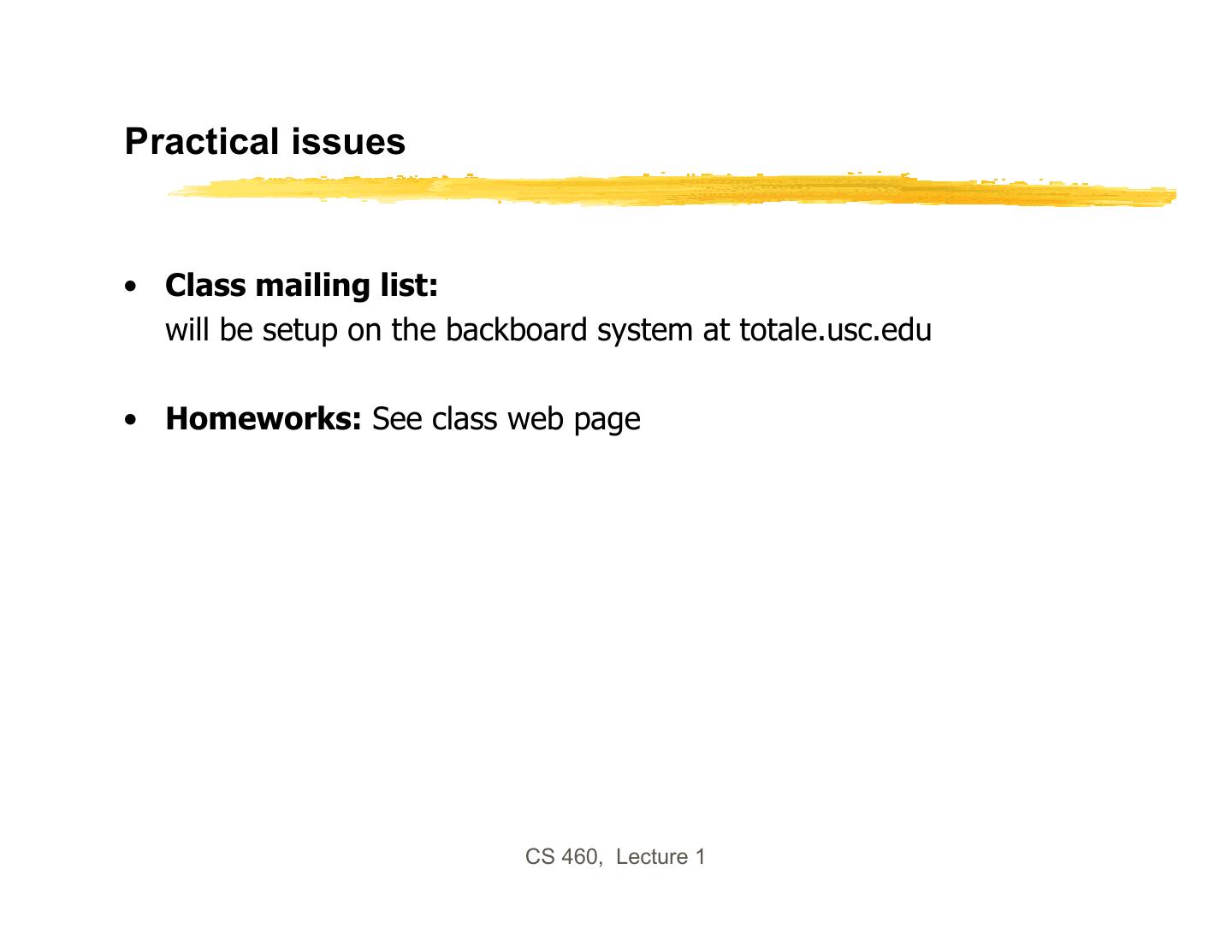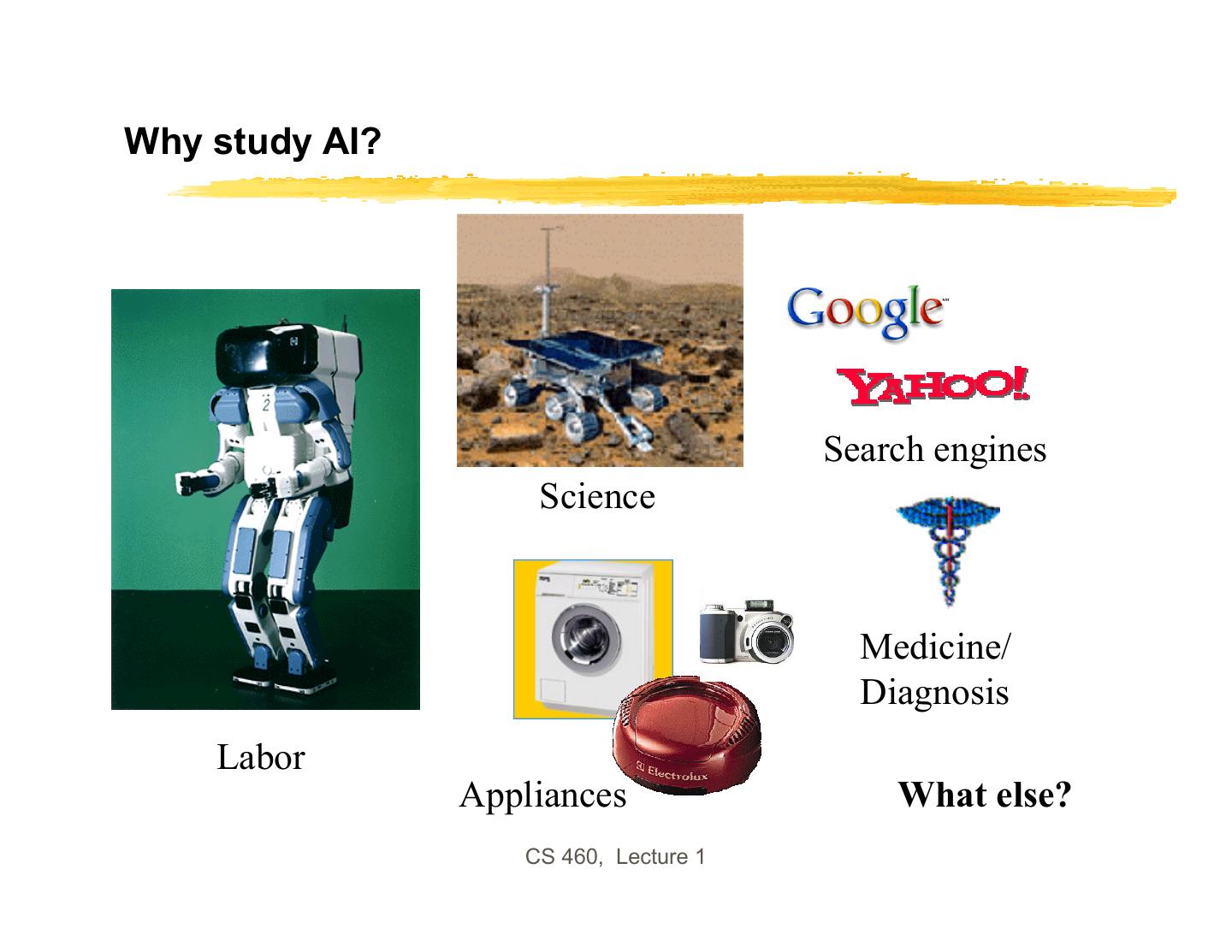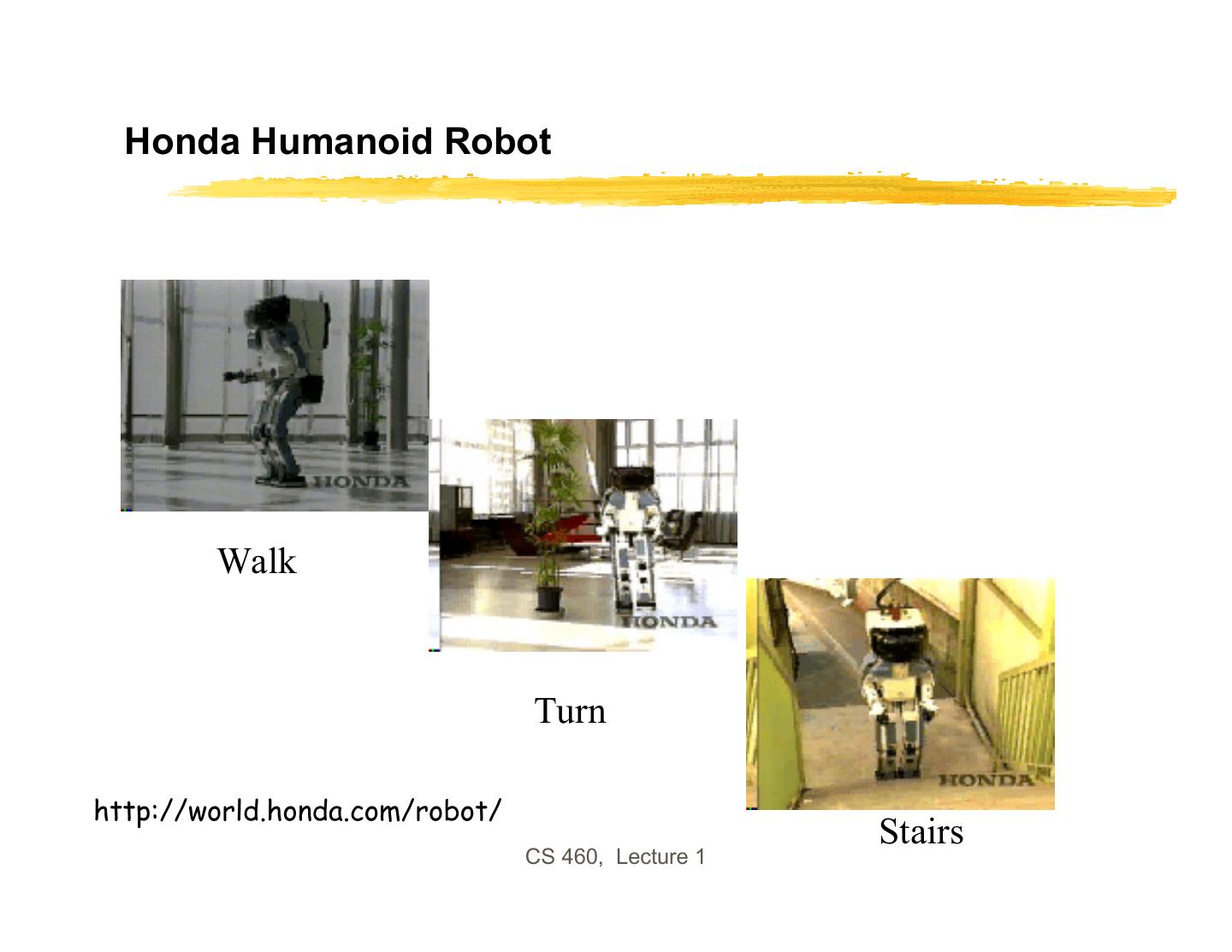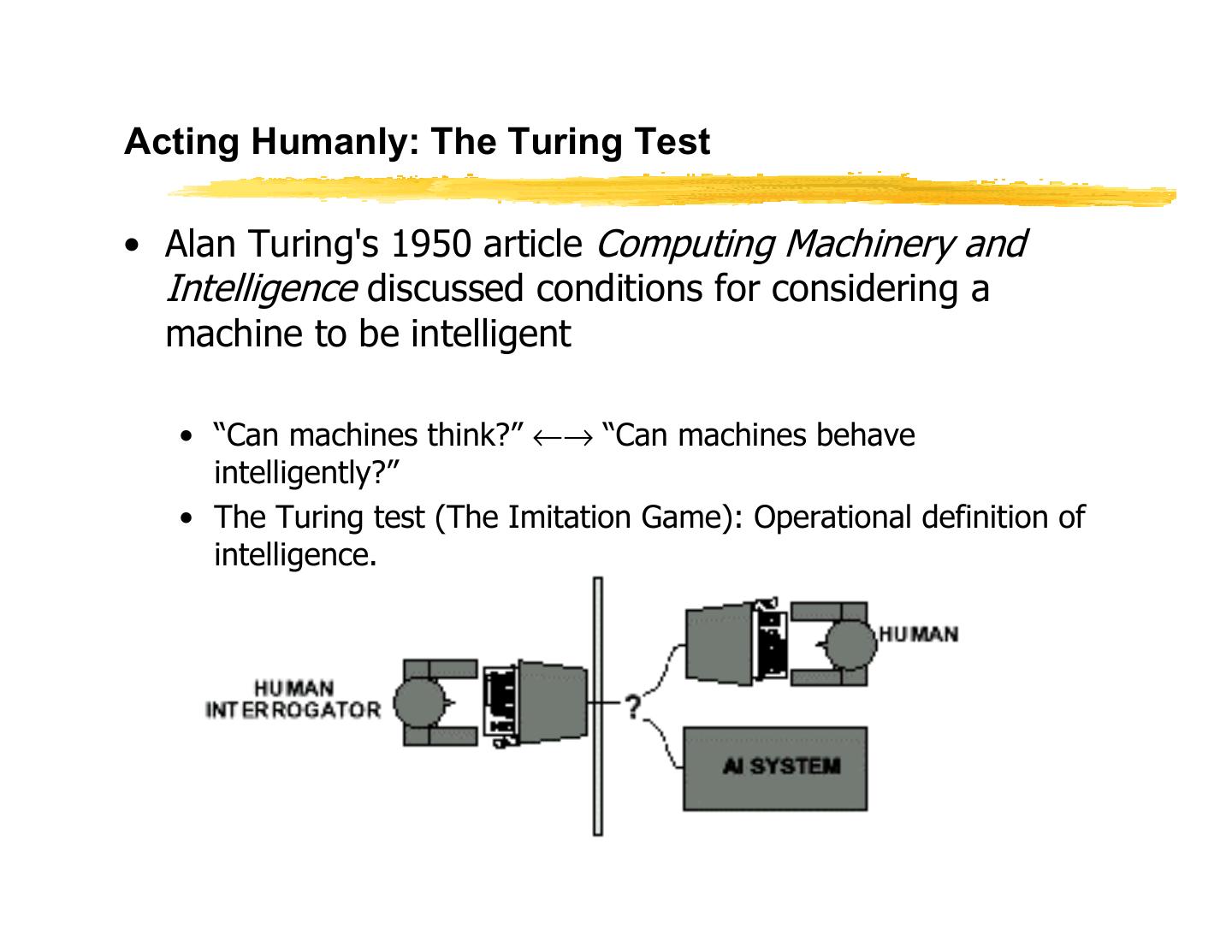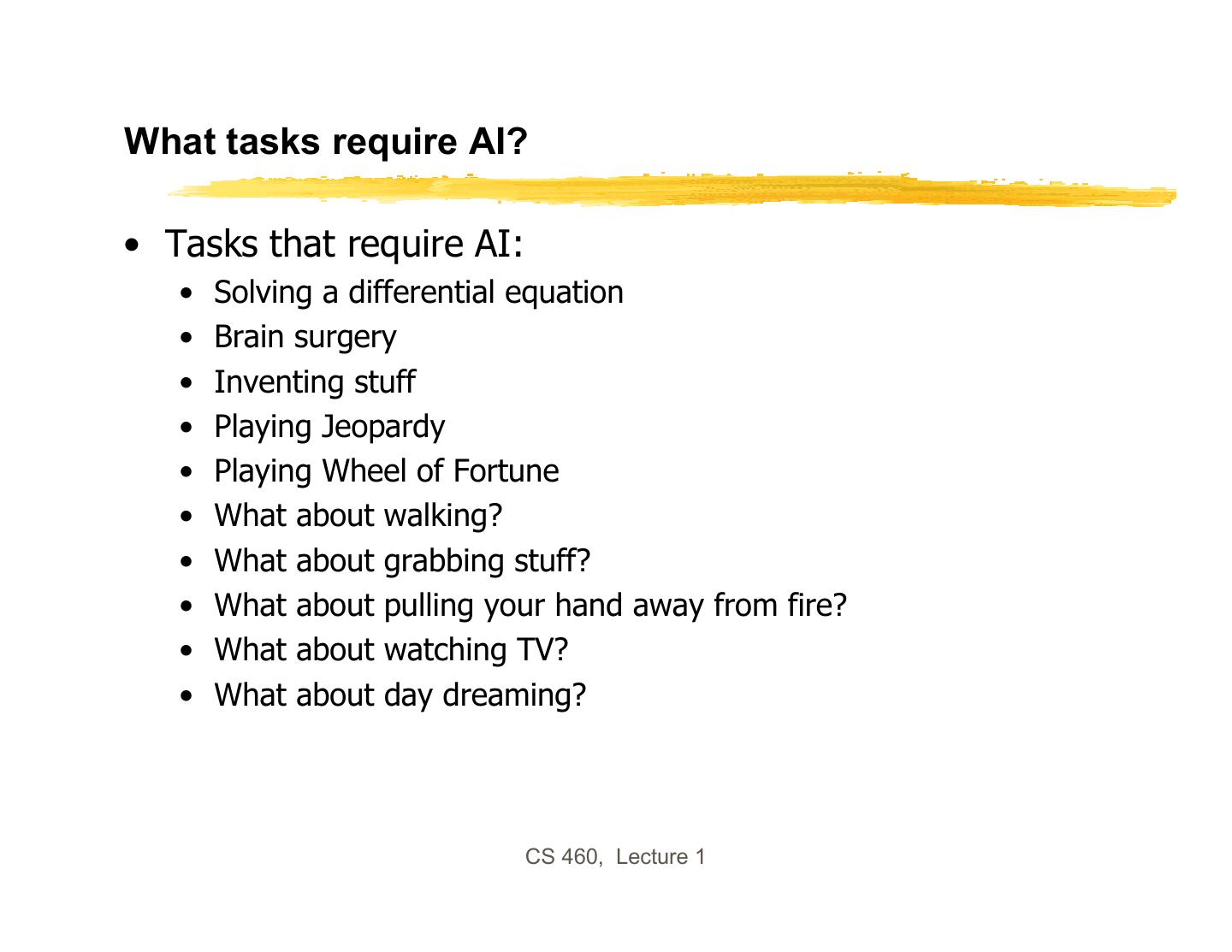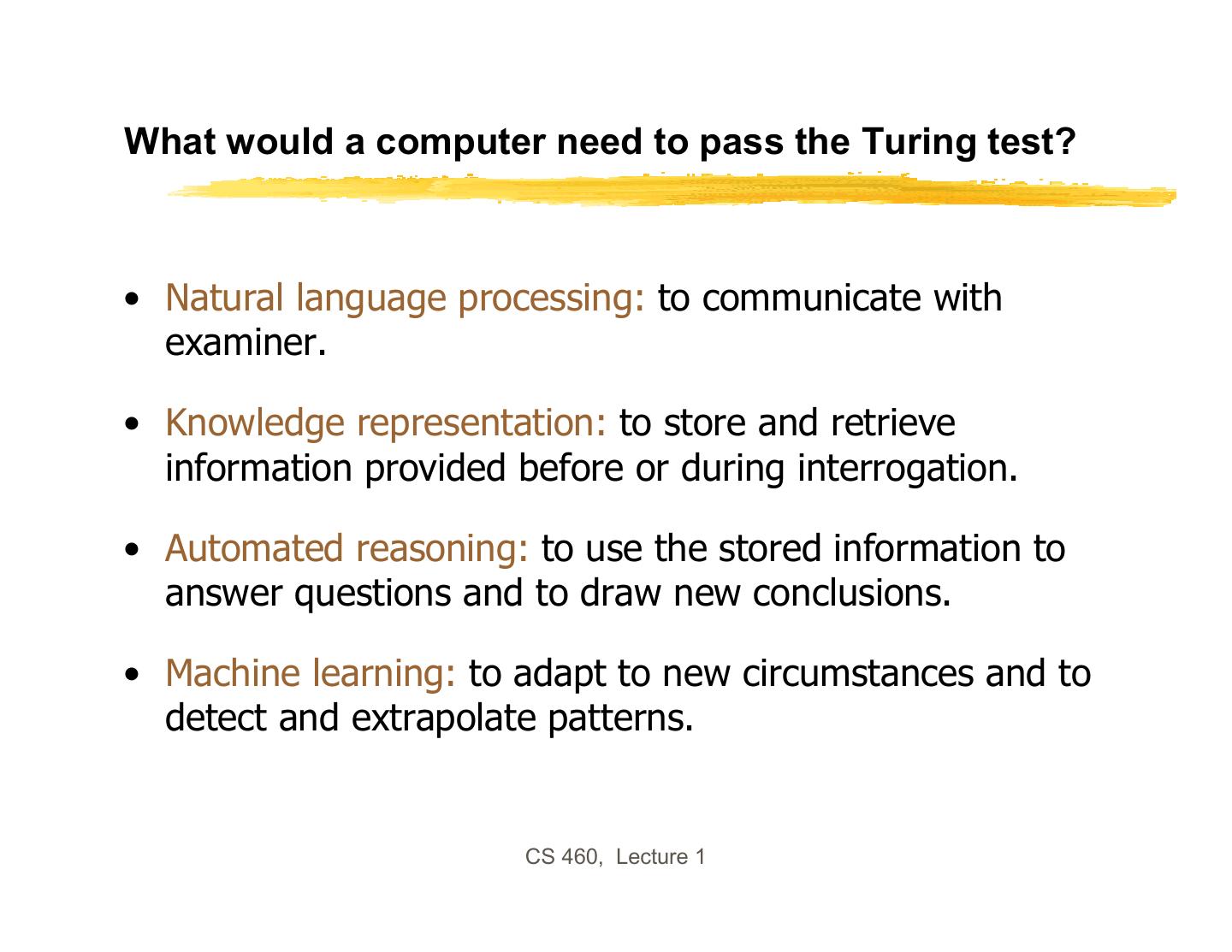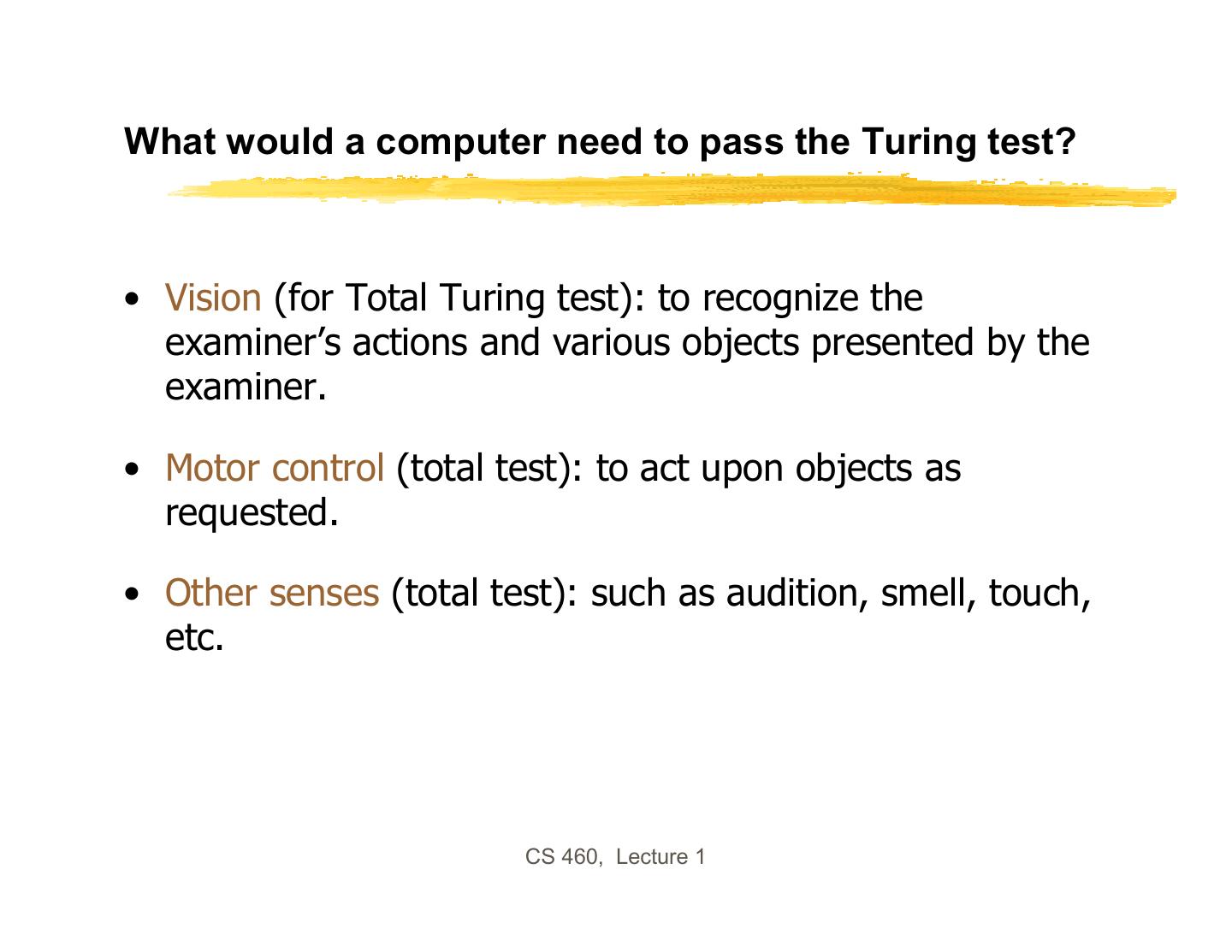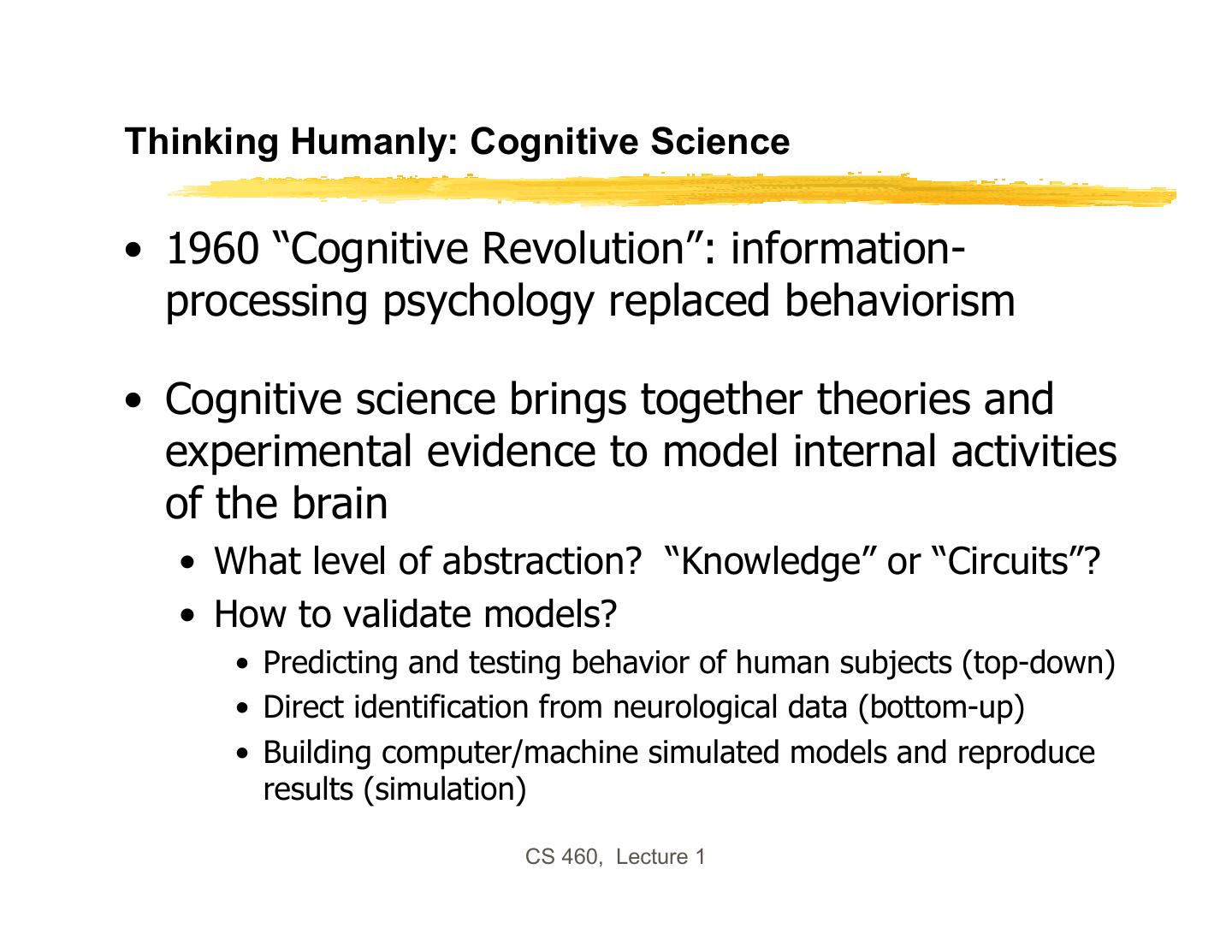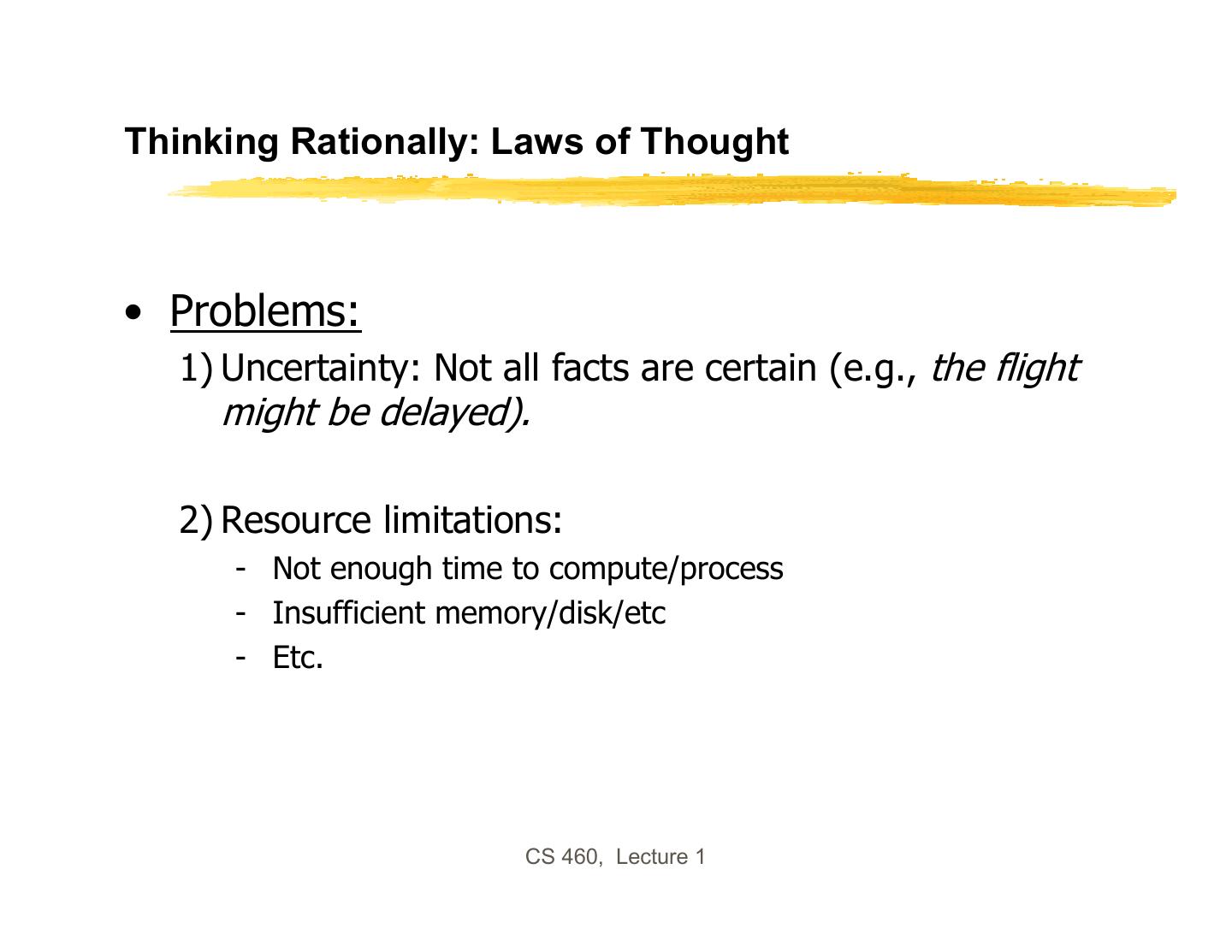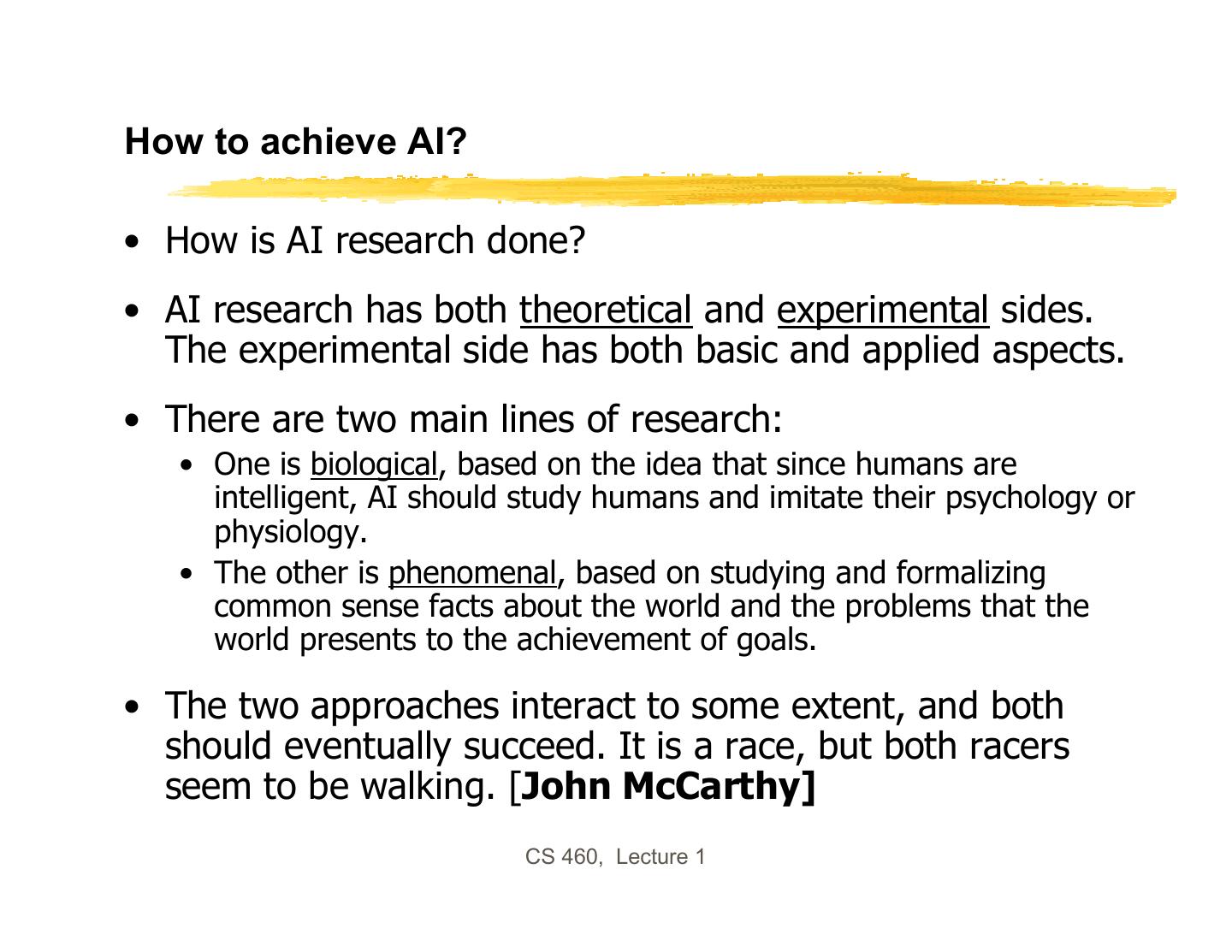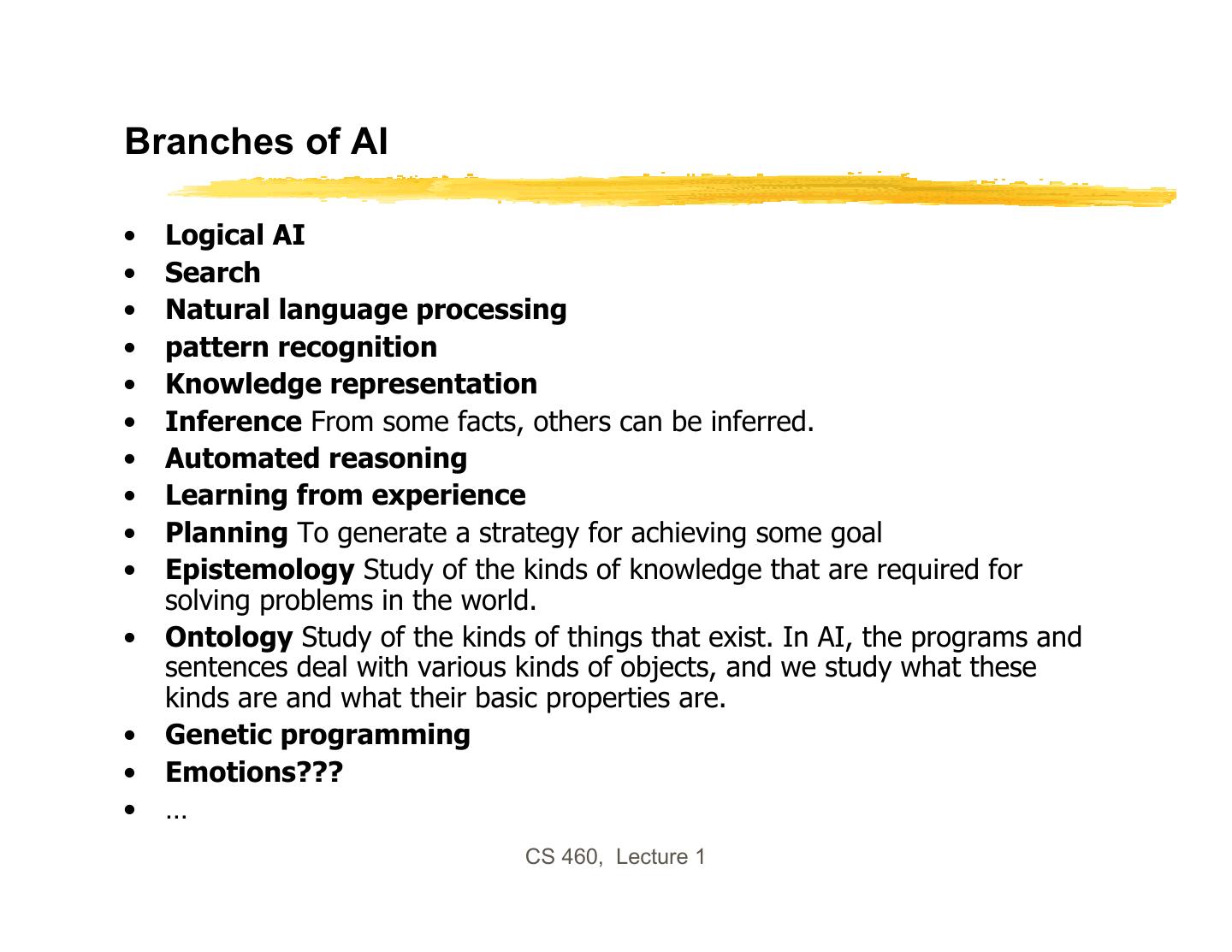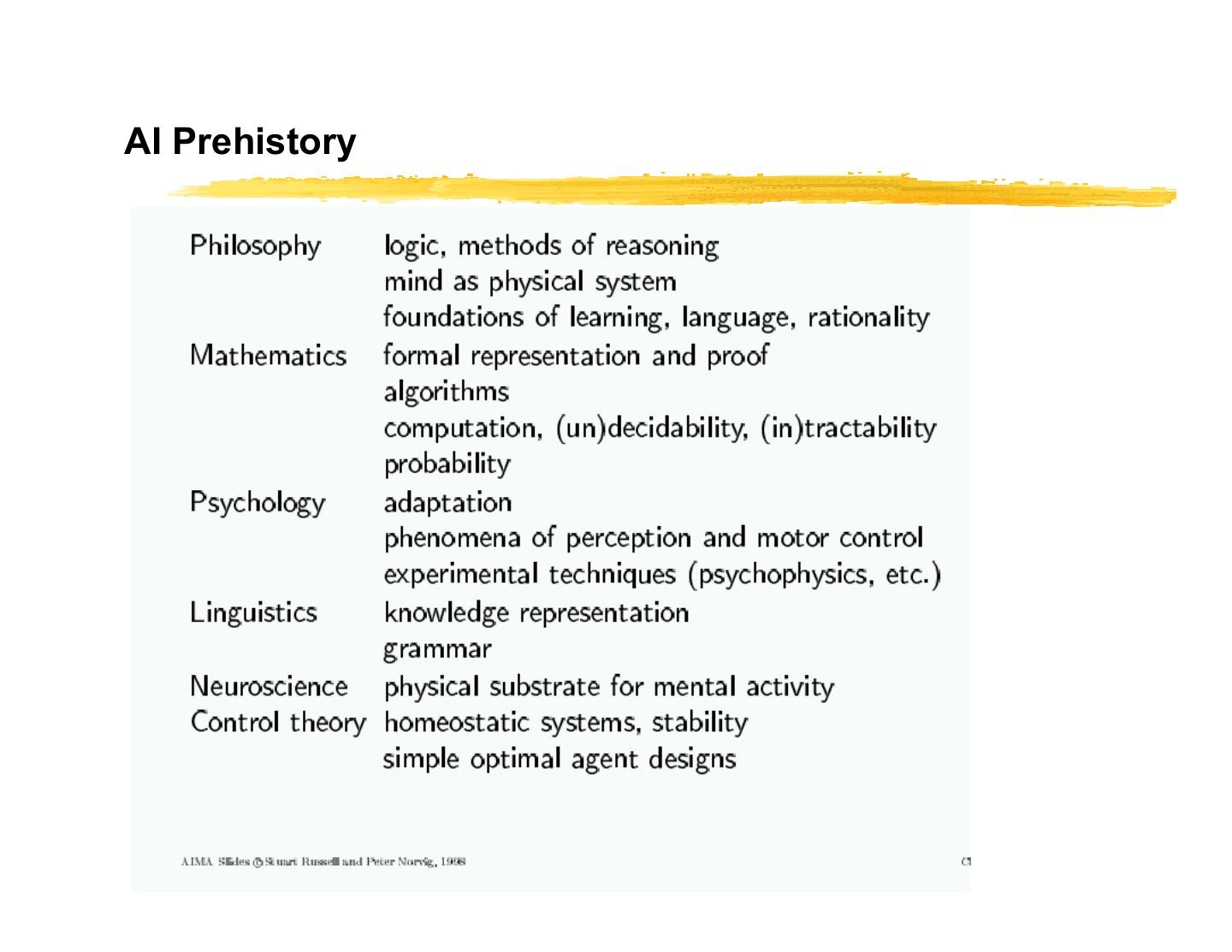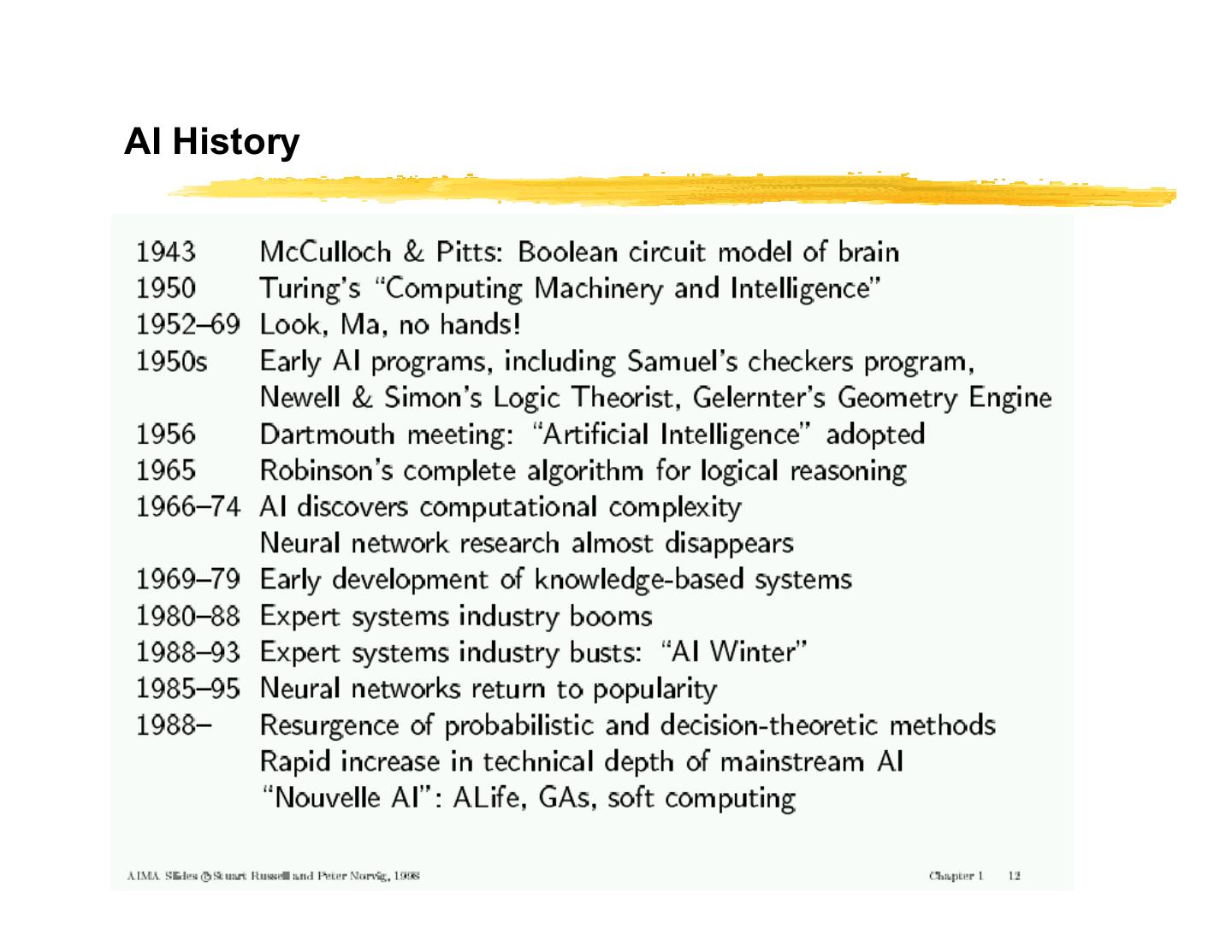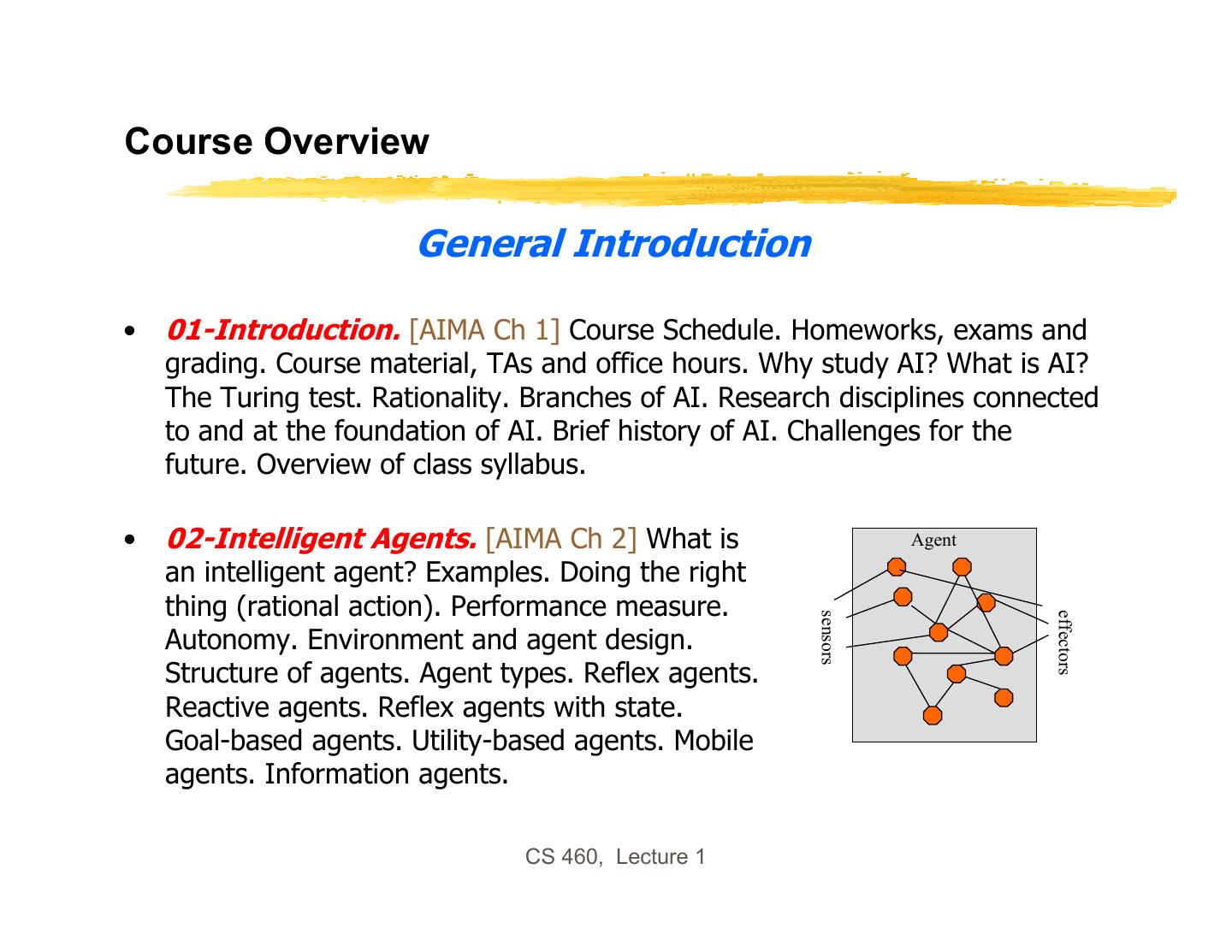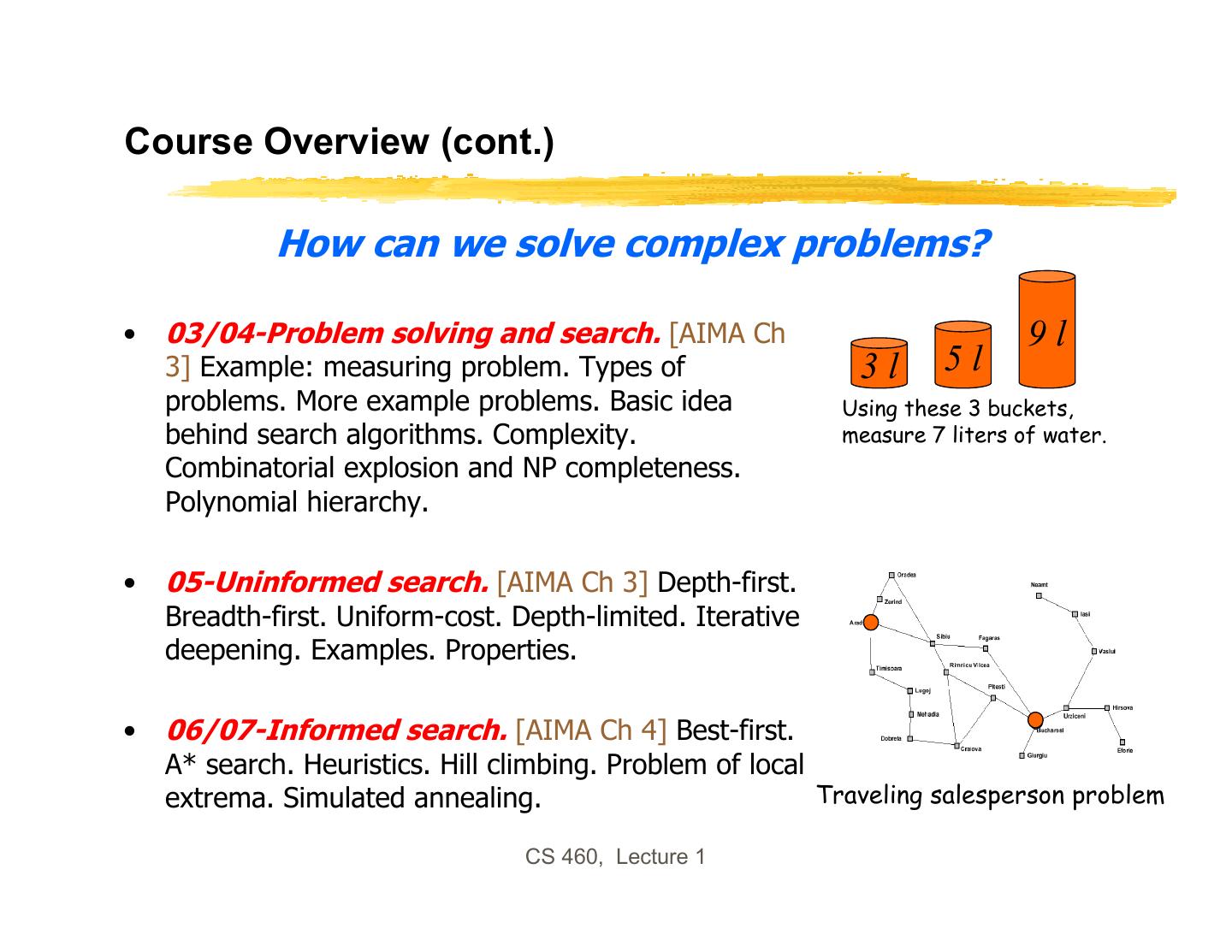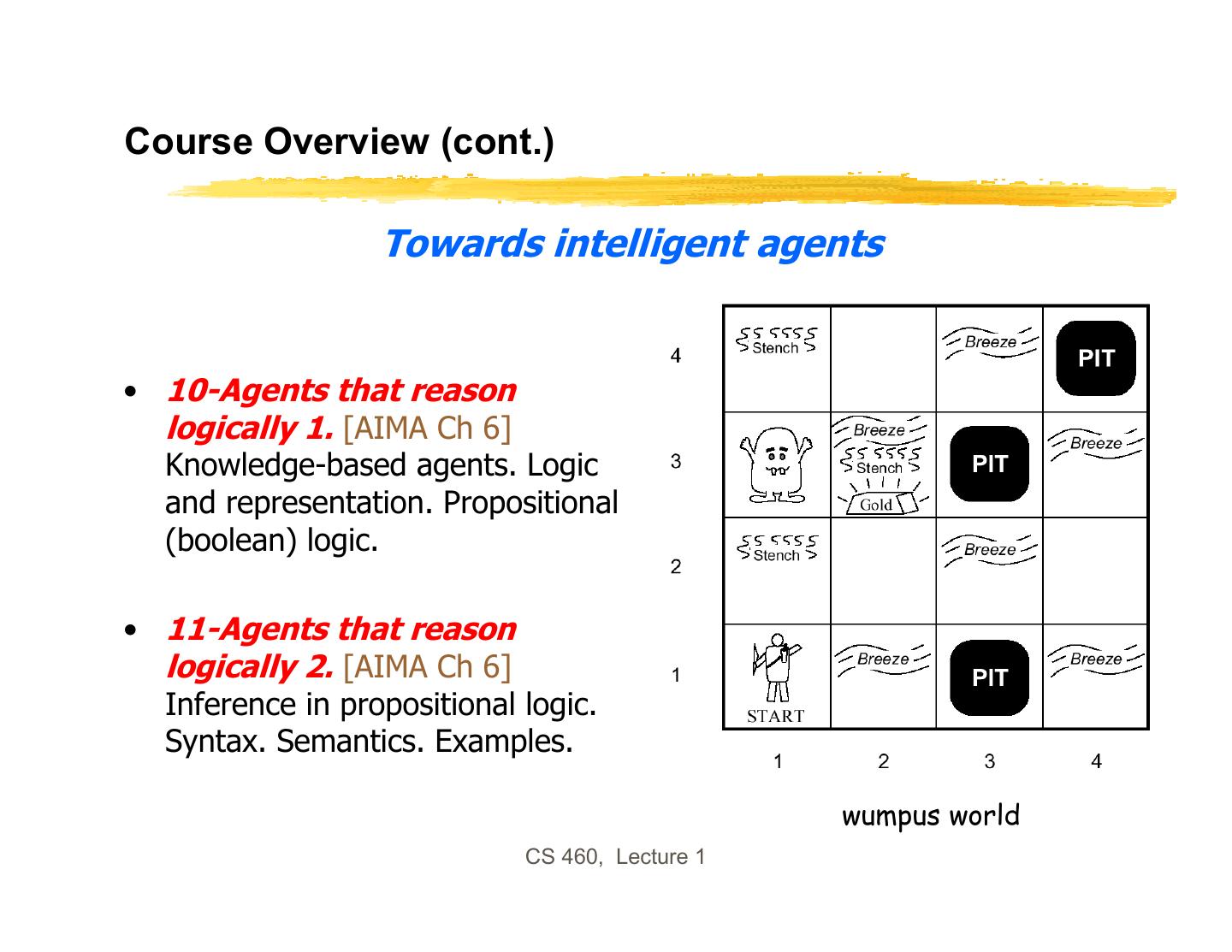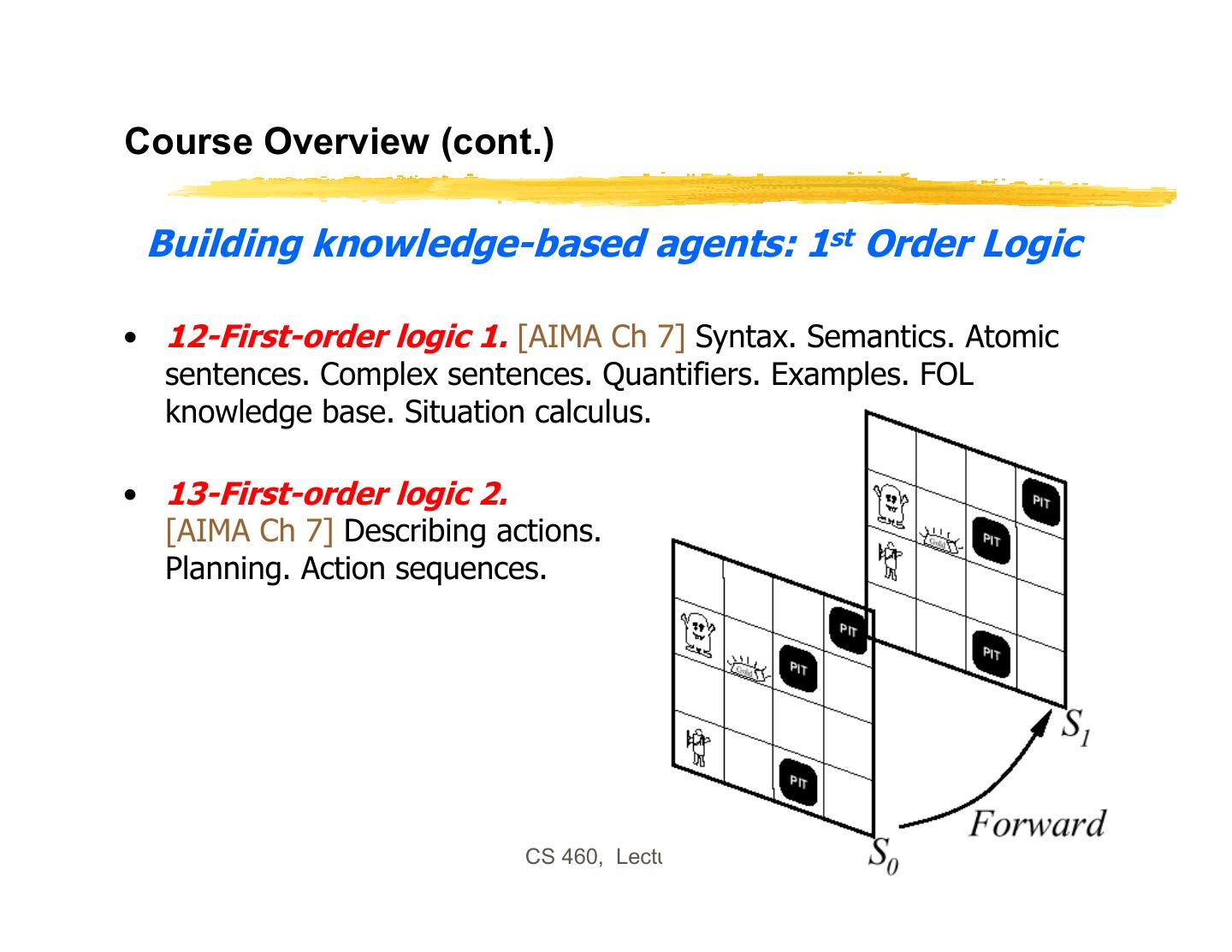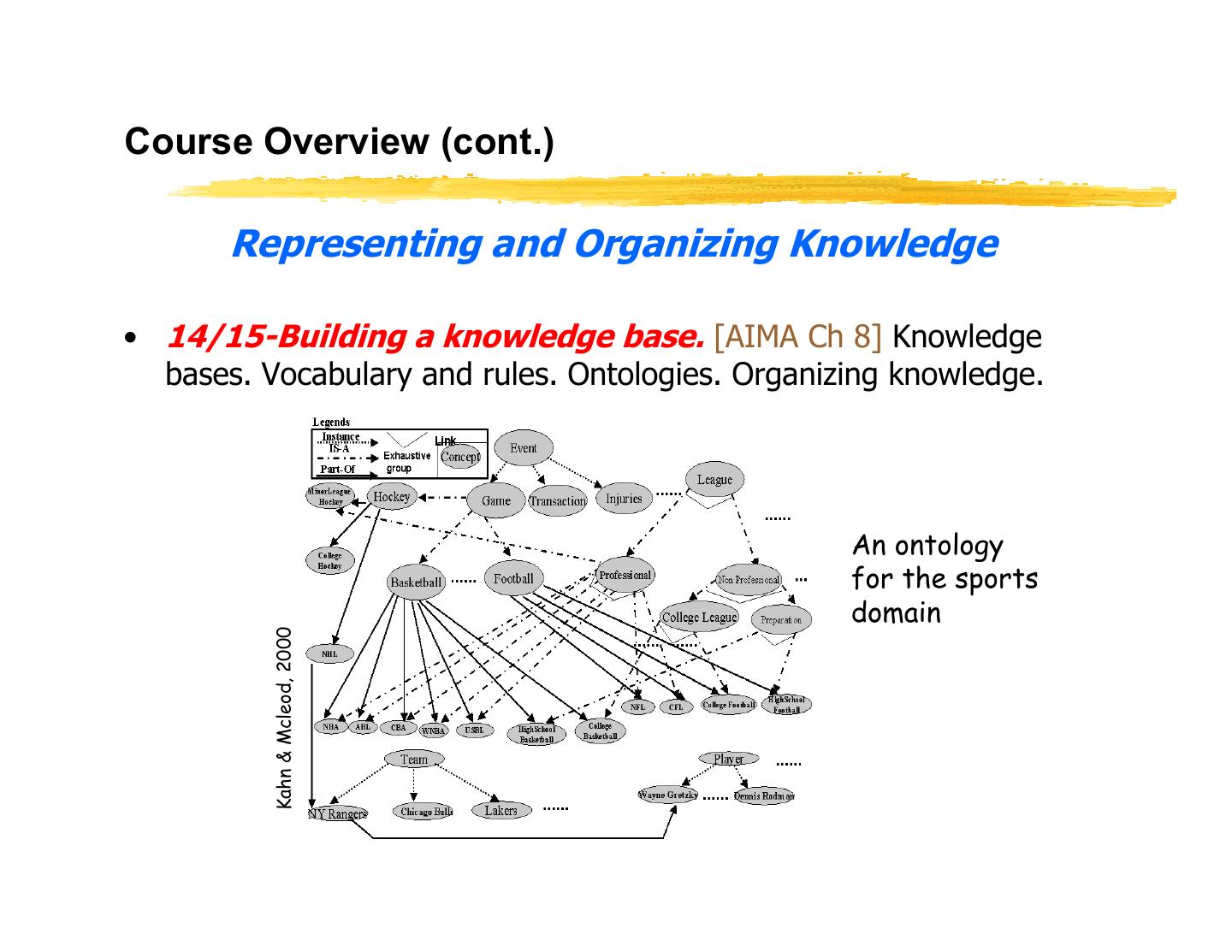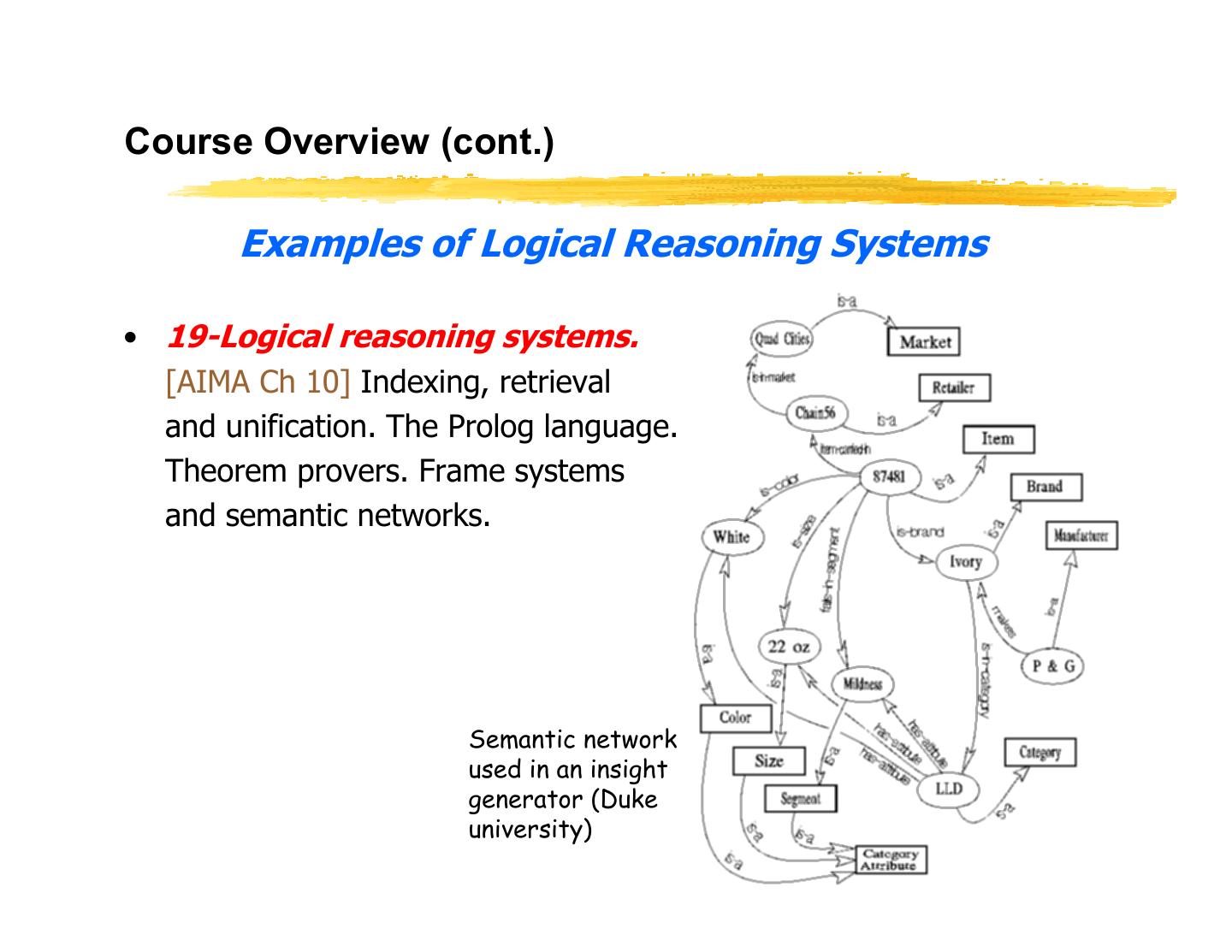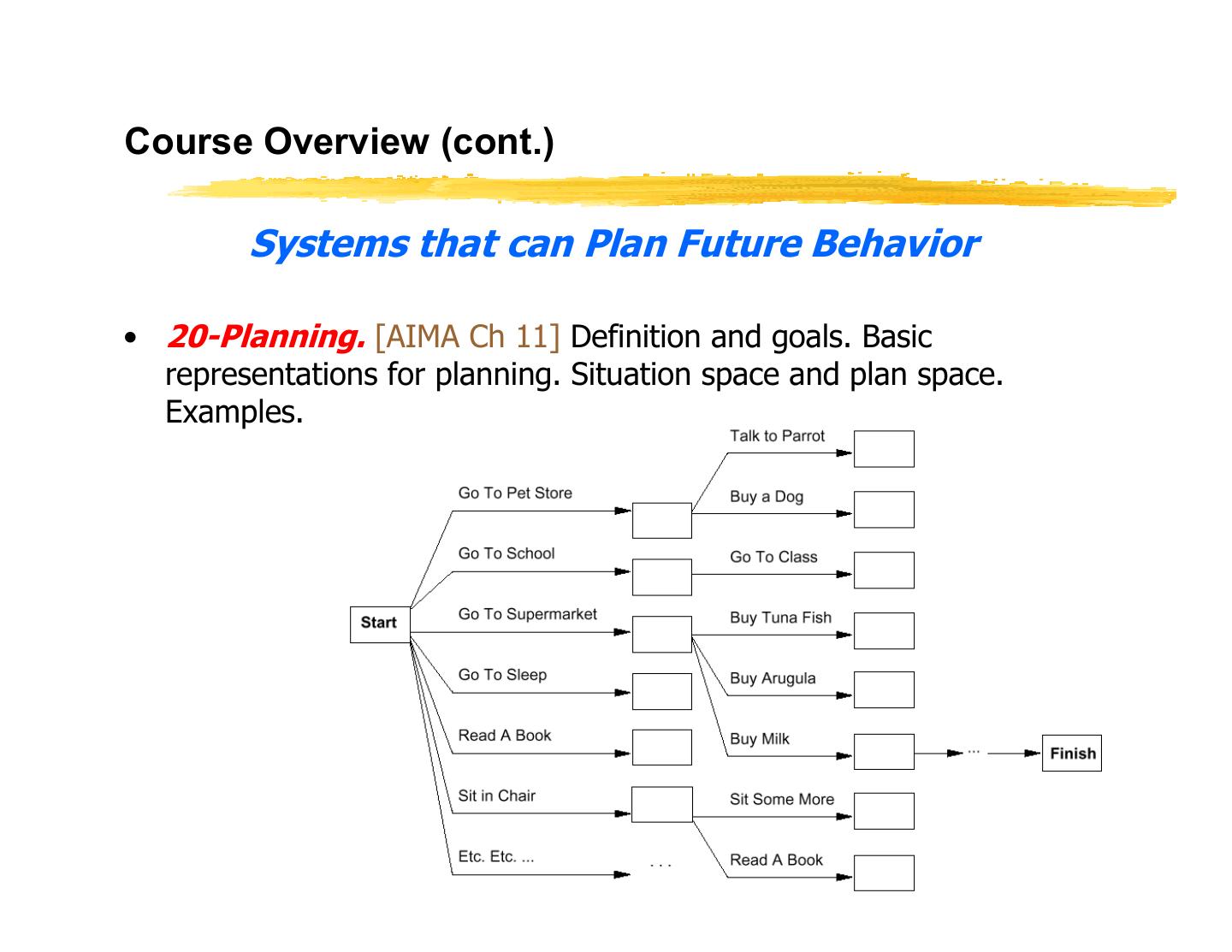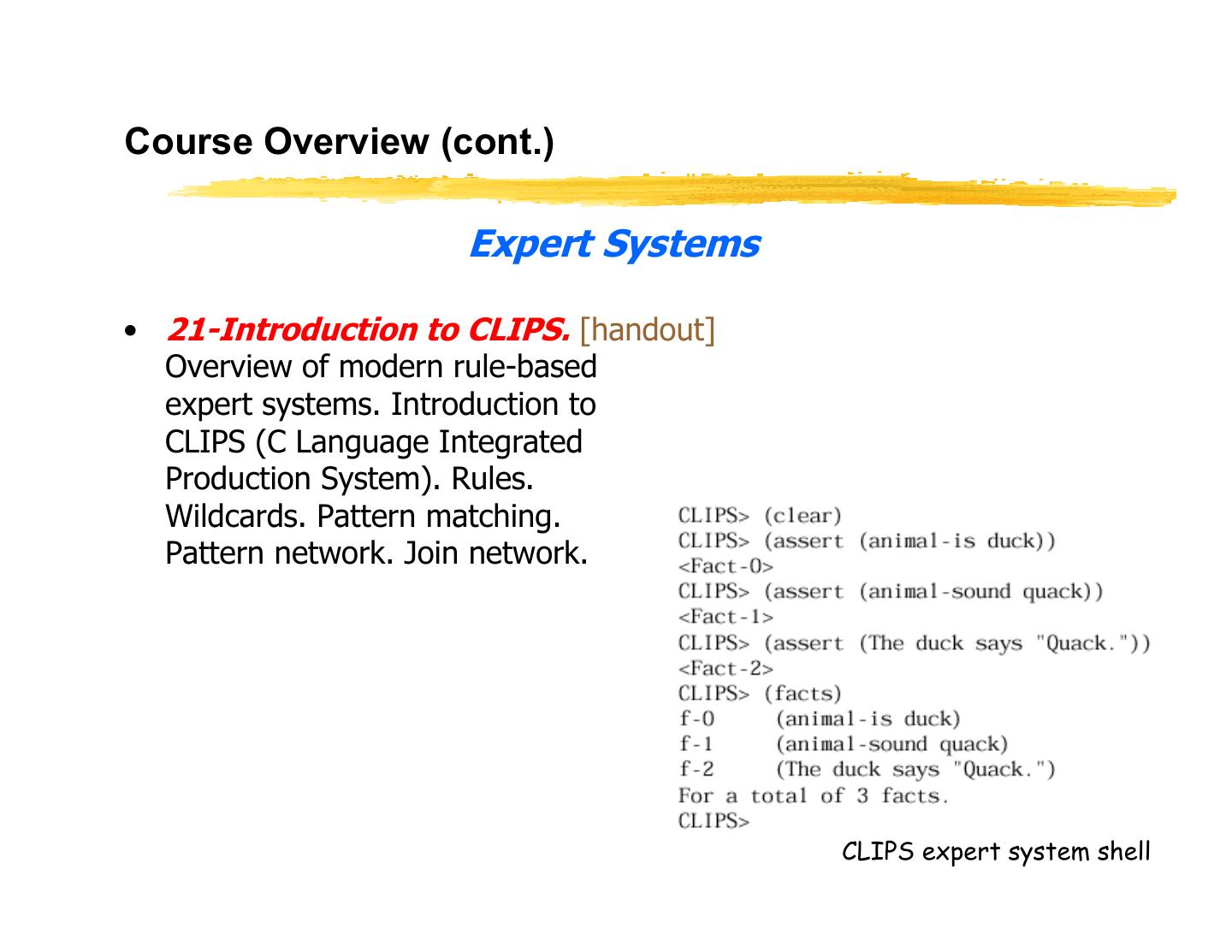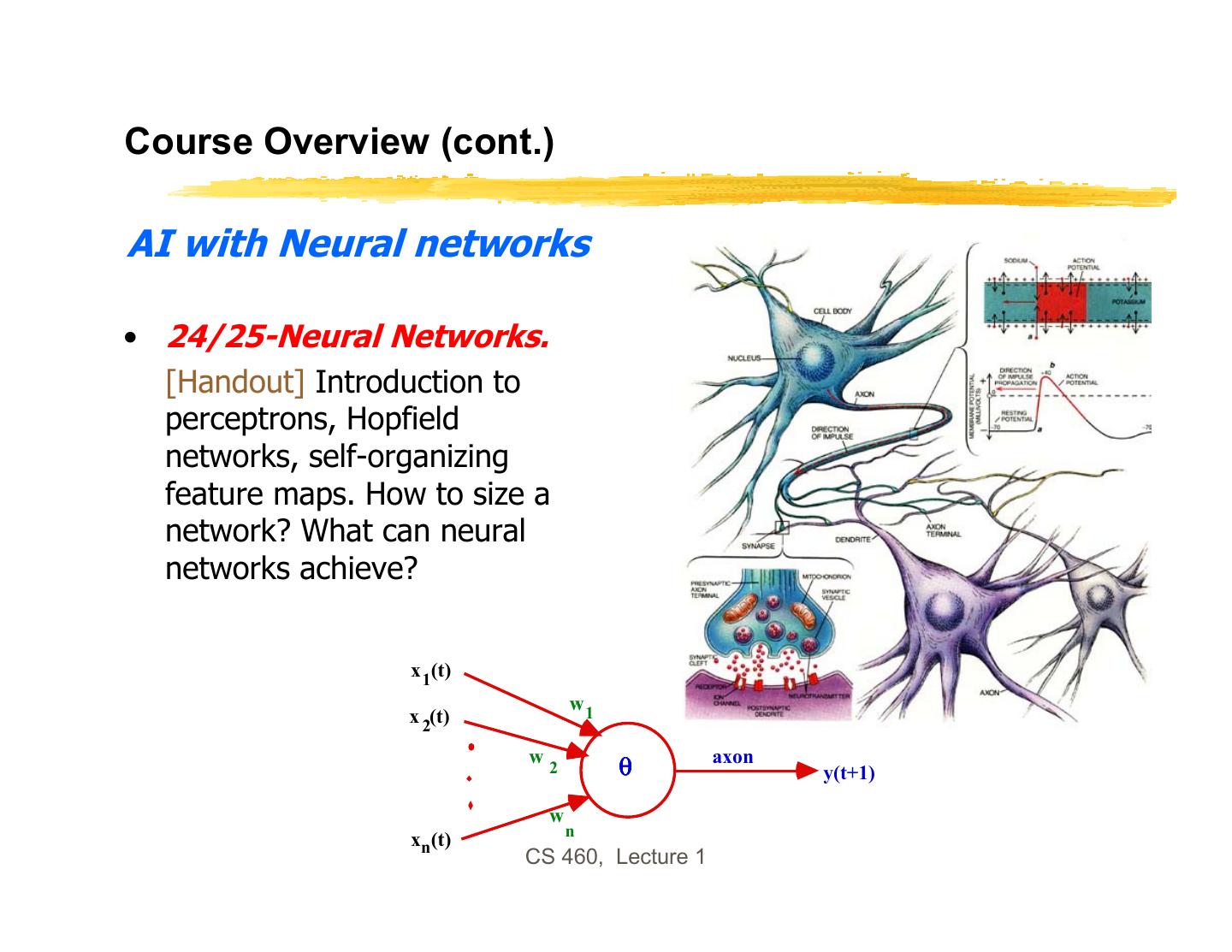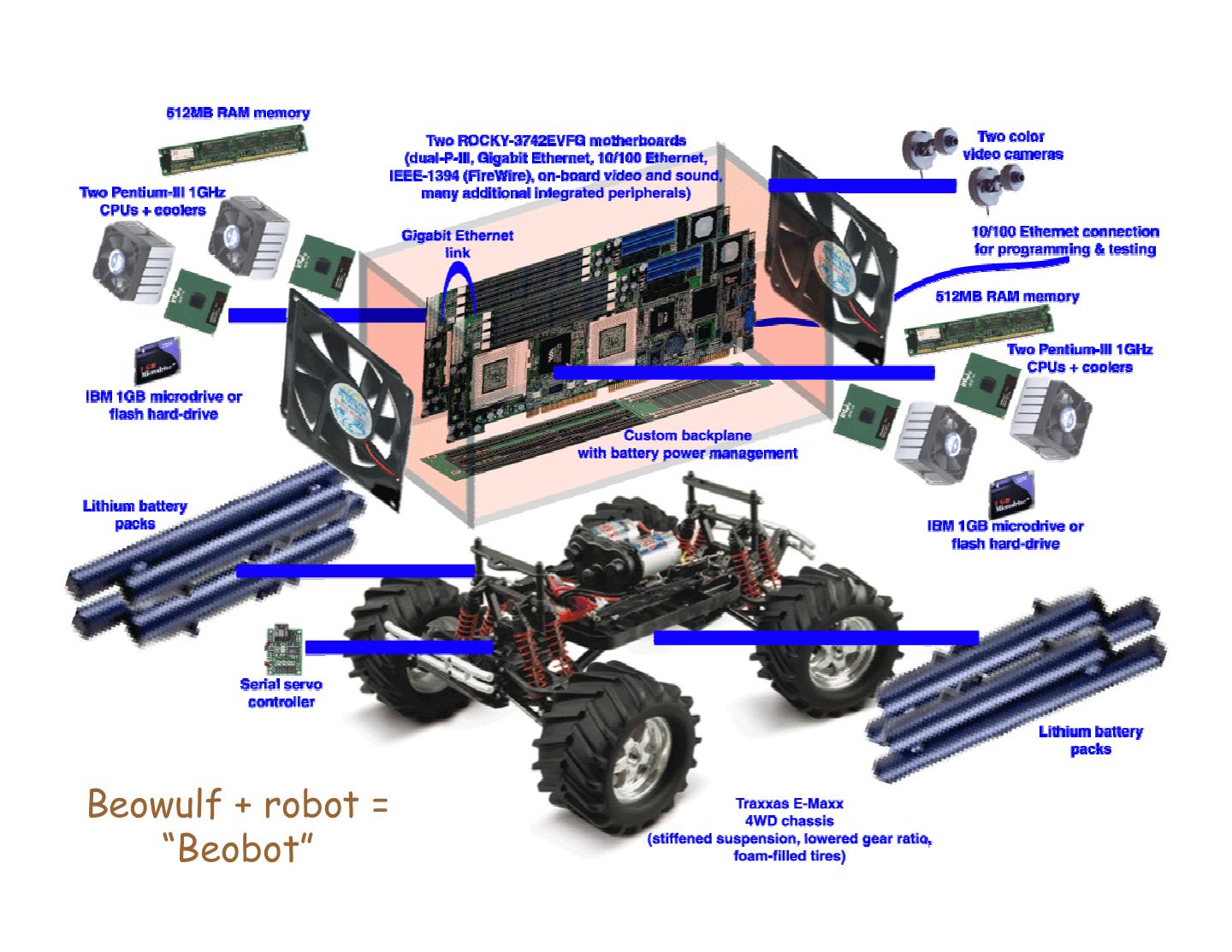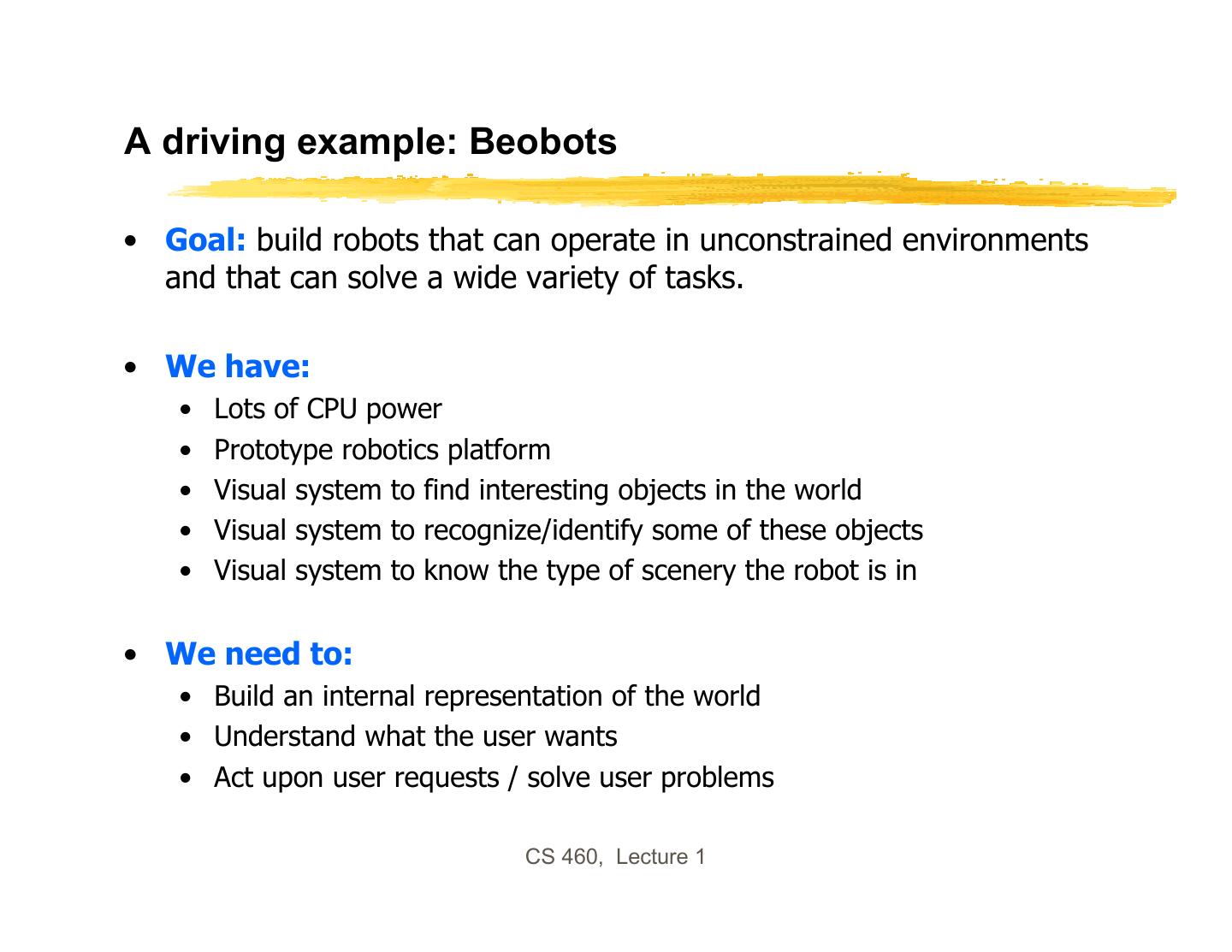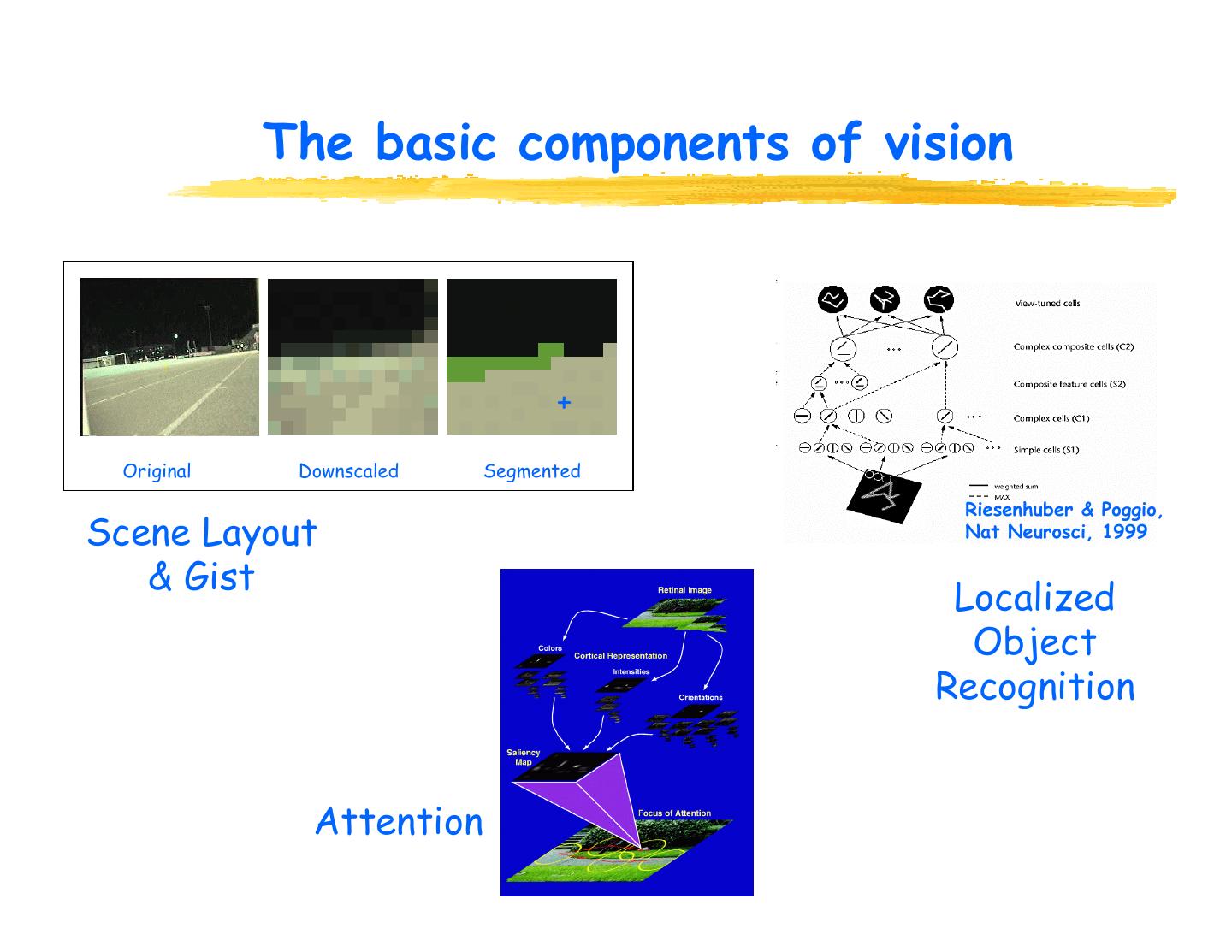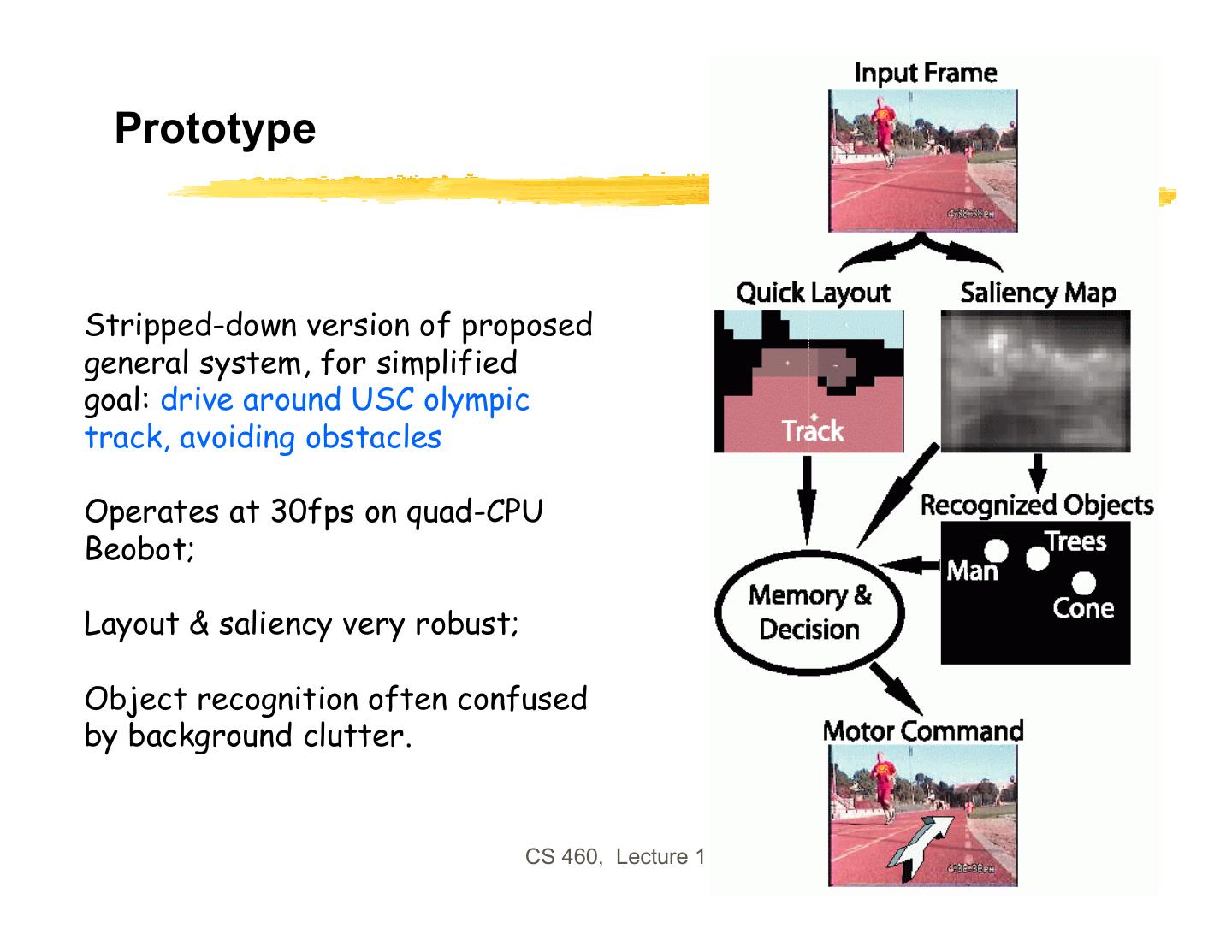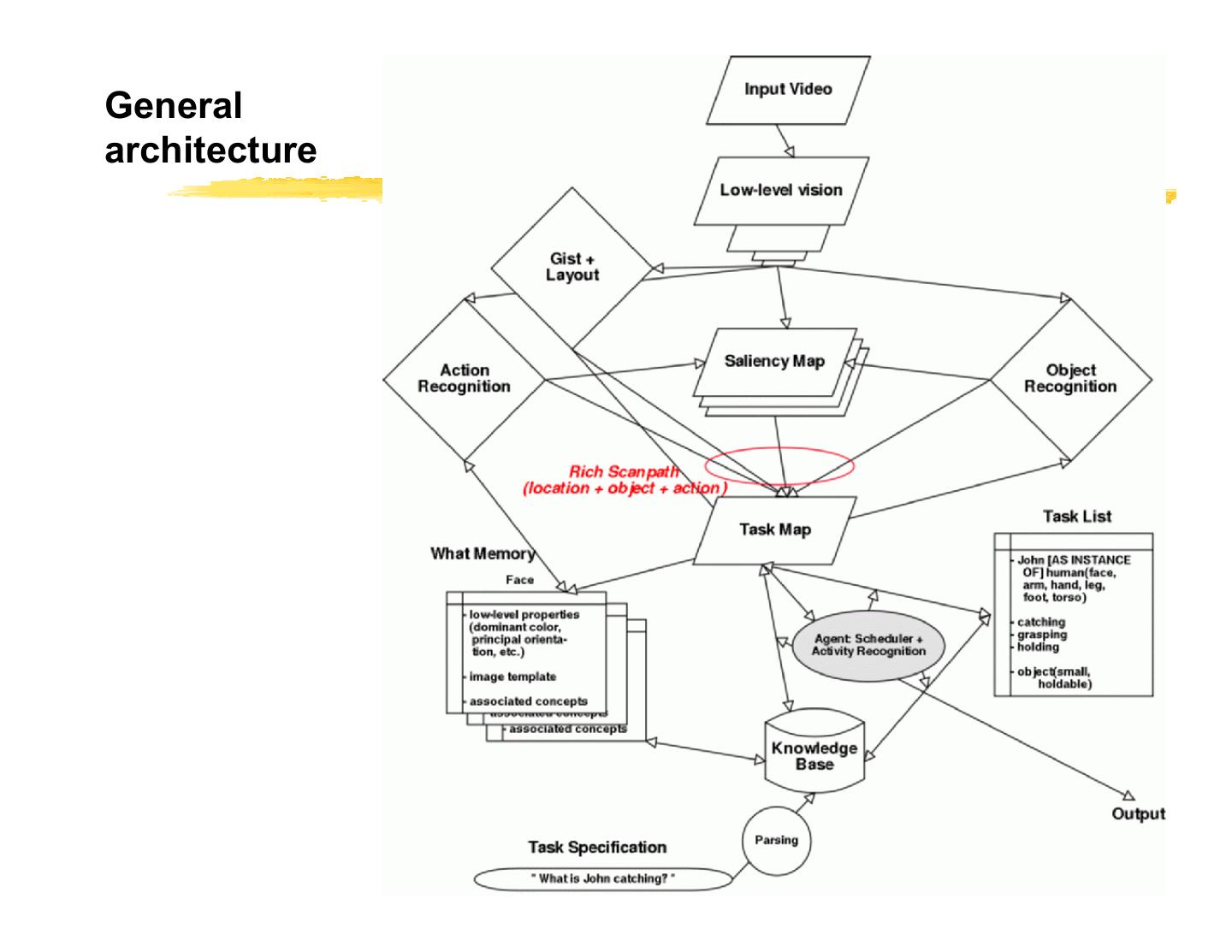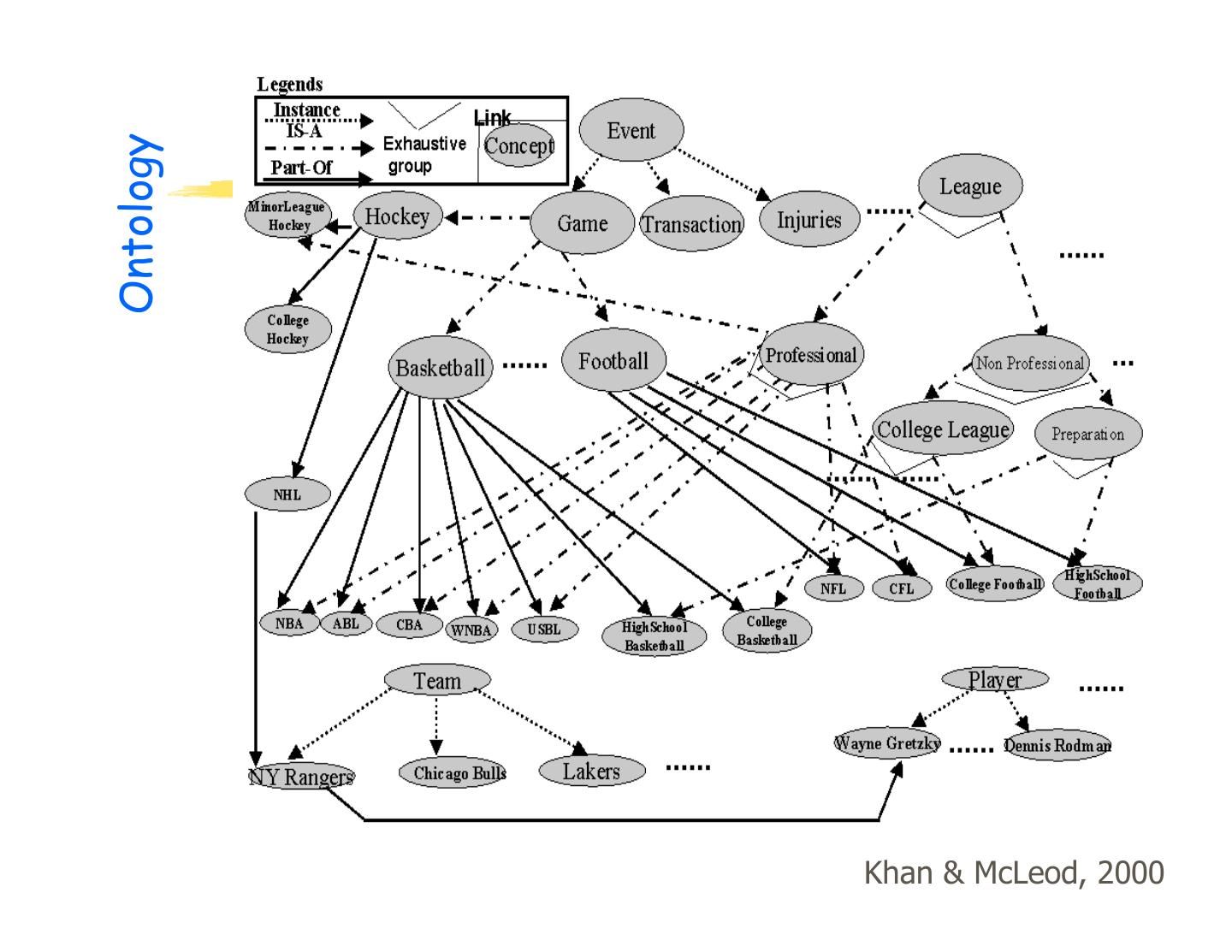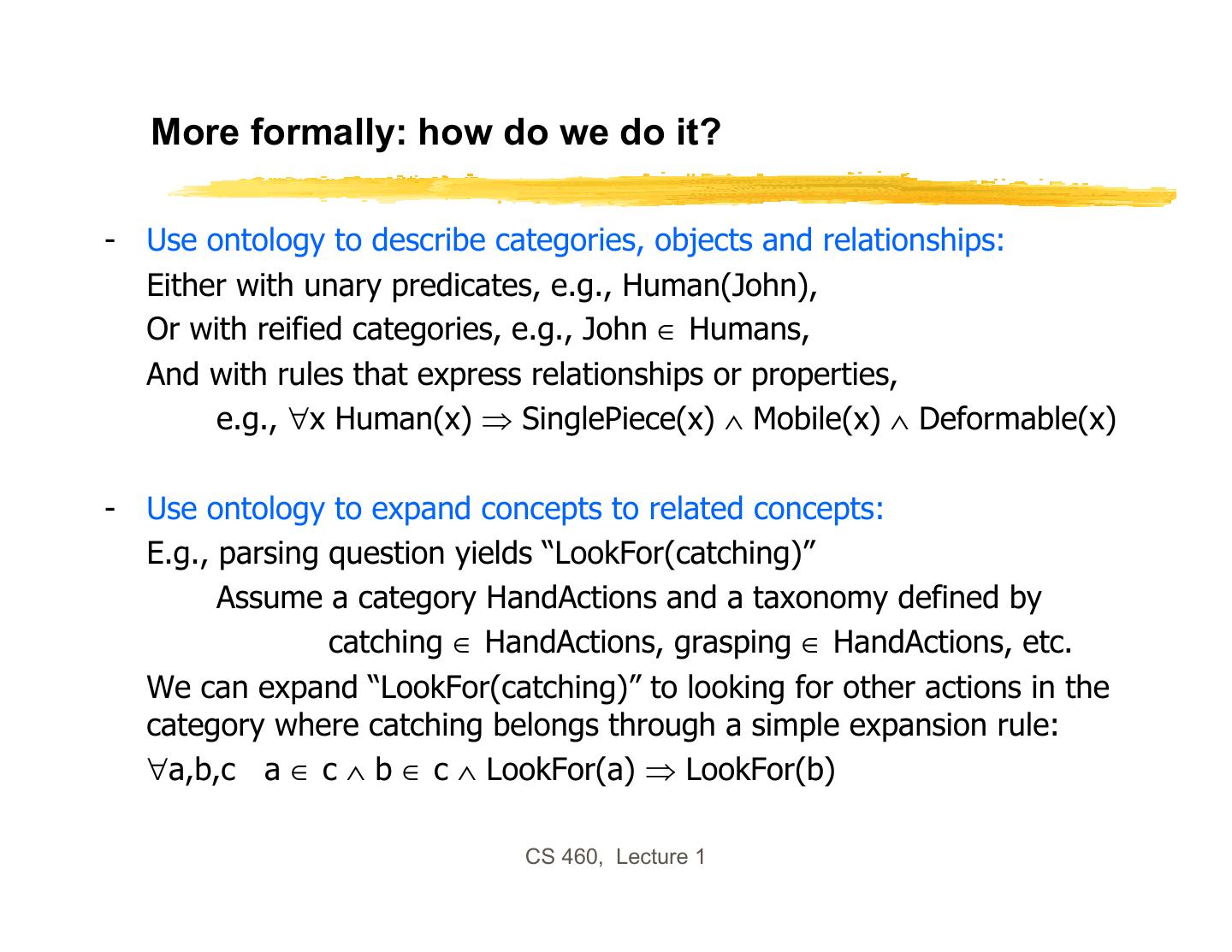- 快召唤伙伴们来围观吧
- 微博 QQ QQ空间 贴吧
- 文档嵌入链接
- 复制
- 微信扫一扫分享
- 已成功复制到剪贴板
040-Artificial Intelligence
展开查看详情
1 .CS 460: Artificial Intelligence • Instructor: Prof. Laurent Itti, itti@pollux.usc.edu • TA: T. Nathan Mundhenk, nathan@mundhenk.com • Lectures: Th 5:00-7:50, ZHS-352 • Office hours: Mon 2:00 – 4:00 pm, HNB-30A, and by appointment • This class will use totale.usc.edu • Course web page: http://iLab.usc.edu/classes/2005cs460 • Up to date information • Lecture notes • Relevant dates, links, etc. • Course material: • [AIMA] Artificial Intelligence: A Modern Approach, by Stuart Russell and Peter Norvig. (2nd ed) CS 460, Lecture 1
2 .CS 460: Artificial Intelligence • Course overview: foundations of symbolic intelligent systems. Agents, search, problem solving, logic, representation, reasoning, symbolic programming, and robotics. • Prerequisites: CS 455x, i.e., programming principles, discrete mathematics for computing, software design and software engineering concepts. Good knowledge of C++ required for programming assignments. • Grading: 30% for midterm + 30% for final + 40% for mandatory homeworks/assignments CS 460, Lecture 1
3 .Practical issues • Class mailing list: will be setup on the backboard system at totale.usc.edu • Homeworks: See class web page CS 460, Lecture 1
4 .Why study AI? Search engines Science Medicine/ Diagnosis Labor Appliances What else? CS 460, Lecture 1
5 . Honda Humanoid Robot Walk Turn http://world.honda.com/robot/ Stairs CS 460, Lecture 1
6 .Sony AIBO http://www.aibo.com CS 460, Lecture 1
7 . Natural Language Question Answering http://aimovie.warnerbros.com http://www.ai.mit.edu/projects/infolab/ CS 460, Lecture 1
8 .Robot Teams USC robotics Lab CS 460, Lecture 1
9 . What is AI? The exciting new effort to “The study of mental faculties make computers thinks … through the use of computational machine with minds, in the full models” and literal sense” (Charniak et al. 1985) (Haugeland 1985) “The art of creating machines A field of study that seeks to that perform functions that explain and emulate intelligent require intelligence when behavior in terms of performed by people” computational processes” (Kurzweil, 1990) (Schalkol, 1990) Systems that think like humans Systems that think rationally Systems that act like humans Systems that act rationally CS 460, Lecture 1
10 .Acting Humanly: The Turing Test • Alan Turing's 1950 article Computing Machinery and Intelligence discussed conditions for considering a machine to be intelligent • “Can machines think?” ←→ “Can machines behave intelligently?” • The Turing test (The Imitation Game): Operational definition of intelligence. CS 460, Lecture 1
11 .Acting Humanly: The Turing Test • Computer needs to possess: Natural language processing, Knowledge representation, Automated reasoning, and Machine learning • Are there any problems/limitations CS 460, Lecture 1 to the Turing Test?
12 .What tasks require AI? • “AI is the science and engineering of making intelligent machines which can perform tasks that require intelligence when performed by humans …” • What tasks require AI? CS 460, Lecture 1
13 .What tasks require AI? • Tasks that require AI: • Solving a differential equation • Brain surgery • Inventing stuff • Playing Jeopardy • Playing Wheel of Fortune • What about walking? • What about grabbing stuff? • What about pulling your hand away from fire? • What about watching TV? • What about day dreaming? CS 460, Lecture 1
14 .Acting Humanly: The Full Turing Test • Alan Turing's 1950 article Computing Machinery and Intelligence discussed conditions for considering a machine to be intelligent • “Can machines think?” ←→ “Can machines behave intelligently?” • The Turing test (The Imitation Game): Operational definition of intelligence. • Computer needs to posses:Natural language processing, Knowledge representation, Automated reasoning, and Machine learning • Problem: 1) Turing test is not reproducible, constructive, and amenable to mathematic analysis. 2) What about physical interaction with interrogator and environment? • Total Turing Test: Requires physical interaction and needs perception and actuation. CS 460, Lecture 1
15 .Acting Humanly: The Full Turing Test • Problem: 1) Turing test is not reproducible, constructive, and amenable to mathematic analysis. 2) What about physical interaction with interrogator and environment? CS 460, Lecture 1
16 . Acting Humanly: The Full Turing Test Problem: 1) Turing test is not reproducible, constructive, and amenable to mathematic analysis. 2) What about physical interaction with interrogator and environment? Trap door CS 460, Lecture 1
17 .What would a computer need to pass the Turing test? • Natural language processing: to communicate with examiner. • Knowledge representation: to store and retrieve information provided before or during interrogation. • Automated reasoning: to use the stored information to answer questions and to draw new conclusions. • Machine learning: to adapt to new circumstances and to detect and extrapolate patterns. CS 460, Lecture 1
18 .What would a computer need to pass the Turing test? • Vision (for Total Turing test): to recognize the examiner’s actions and various objects presented by the examiner. • Motor control (total test): to act upon objects as requested. • Other senses (total test): such as audition, smell, touch, etc. CS 460, Lecture 1
19 .Thinking Humanly: Cognitive Science • 1960 “Cognitive Revolution”: information- processing psychology replaced behaviorism • Cognitive science brings together theories and experimental evidence to model internal activities of the brain • What level of abstraction? “Knowledge” or “Circuits”? • How to validate models? • Predicting and testing behavior of human subjects (top-down) • Direct identification from neurological data (bottom-up) • Building computer/machine simulated models and reproduce results (simulation) CS 460, Lecture 1
20 .Thinking Rationally: Laws of Thought • Aristotle (~ 450 B.C.) attempted to codify “right thinking” What are correct arguments/thought processes? • E.g., “Socrates is a man, all men are mortal; therefore Socrates is mortal” • Several Greek schools developed various forms of logic: notation plus rules of derivation for thoughts. CS 460, Lecture 1
21 .Thinking Rationally: Laws of Thought • Problems: 1) Uncertainty: Not all facts are certain (e.g., the flight might be delayed). 2) Resource limitations: - Not enough time to compute/process - Insufficient memory/disk/etc - Etc. CS 460, Lecture 1
22 .Acting Rationally: The Rational Agent • Rational behavior: Doing the right thing! • The right thing: That which is expected to maximize the expected return • Provides the most general view of AI because it includes: • Correct inference (“Laws of thought”) • Uncertainty handling • Resource limitation considerations (e.g., reflex vs. deliberation) • Cognitive skills (NLP, AR, knowledge representation, ML, etc.) • Advantages: 1) More general 2) Its goal of rationality is well defined CS 460, Lecture 1
23 .How to achieve AI? • How is AI research done? • AI research has both theoretical and experimental sides. The experimental side has both basic and applied aspects. • There are two main lines of research: • One is biological, based on the idea that since humans are intelligent, AI should study humans and imitate their psychology or physiology. • The other is phenomenal, based on studying and formalizing common sense facts about the world and the problems that the world presents to the achievement of goals. • The two approaches interact to some extent, and both should eventually succeed. It is a race, but both racers seem to be walking. [John McCarthy] CS 460, Lecture 1
24 .Branches of AI • Logical AI • Search • Natural language processing • pattern recognition • Knowledge representation • Inference From some facts, others can be inferred. • Automated reasoning • Learning from experience • Planning To generate a strategy for achieving some goal • Epistemology Study of the kinds of knowledge that are required for solving problems in the world. • Ontology Study of the kinds of things that exist. In AI, the programs and sentences deal with various kinds of objects, and we study what these kinds are and what their basic properties are. • Genetic programming • Emotions??? • … CS 460, Lecture 1
25 .AI Prehistory CS 460, Lecture 1
26 .AI History CS 460, Lecture 1
27 .AI State of the art • Have the following been achieved by AI? • World-class chess playing • Playing table tennis • Cross-country driving • Solving mathematical problems • Discover and prove mathematical theories • Engage in a meaningful conversation • Understand spoken language • Observe and understand human emotions • Express emotions • … CS 460, Lecture 1
28 .Course Overview General Introduction • 01-Introduction. [AIMA Ch 1] Course Schedule. Homeworks, exams and grading. Course material, TAs and office hours. Why study AI? What is AI? The Turing test. Rationality. Branches of AI. Research disciplines connected to and at the foundation of AI. Brief history of AI. Challenges for the future. Overview of class syllabus. • 02-Intelligent Agents. [AIMA Ch 2] What is Agent an intelligent agent? Examples. Doing the right thing (rational action). Performance measure. sensors effectors Autonomy. Environment and agent design. Structure of agents. Agent types. Reflex agents. Reactive agents. Reflex agents with state. Goal-based agents. Utility-based agents. Mobile agents. Information agents. CS 460, Lecture 1
29 .Course Overview (cont.) How can we solve complex problems? • 03/04-Problem solving and search. [AIMA Ch 9l 3] Example: measuring problem. Types of 3l 5l problems. More example problems. Basic idea Using these 3 buckets, behind search algorithms. Complexity. measure 7 liters of water. Combinatorial explosion and NP completeness. Polynomial hierarchy. • 05-Uninformed search. [AIMA Ch 3] Depth-first. Breadth-first. Uniform-cost. Depth-limited. Iterative deepening. Examples. Properties. • 06/07-Informed search. [AIMA Ch 4] Best-first. A* search. Heuristics. Hill climbing. Problem of local extrema. Simulated annealing. Traveling salesperson problem CS 460, Lecture 1





